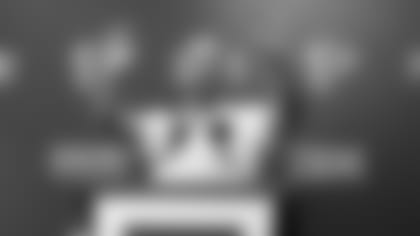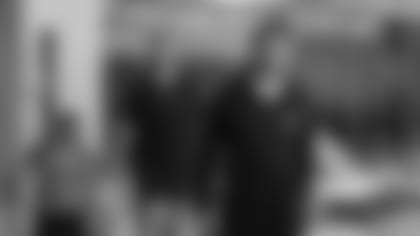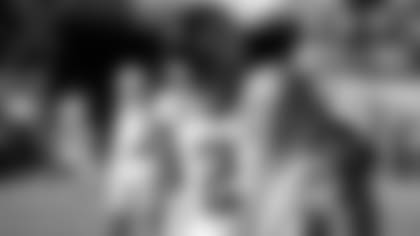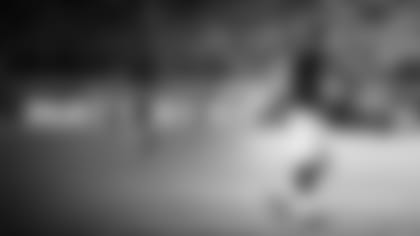The Atlanta Falcons were hard at work in the cool weather as they continue to prepare for the Baltimore Ravens.
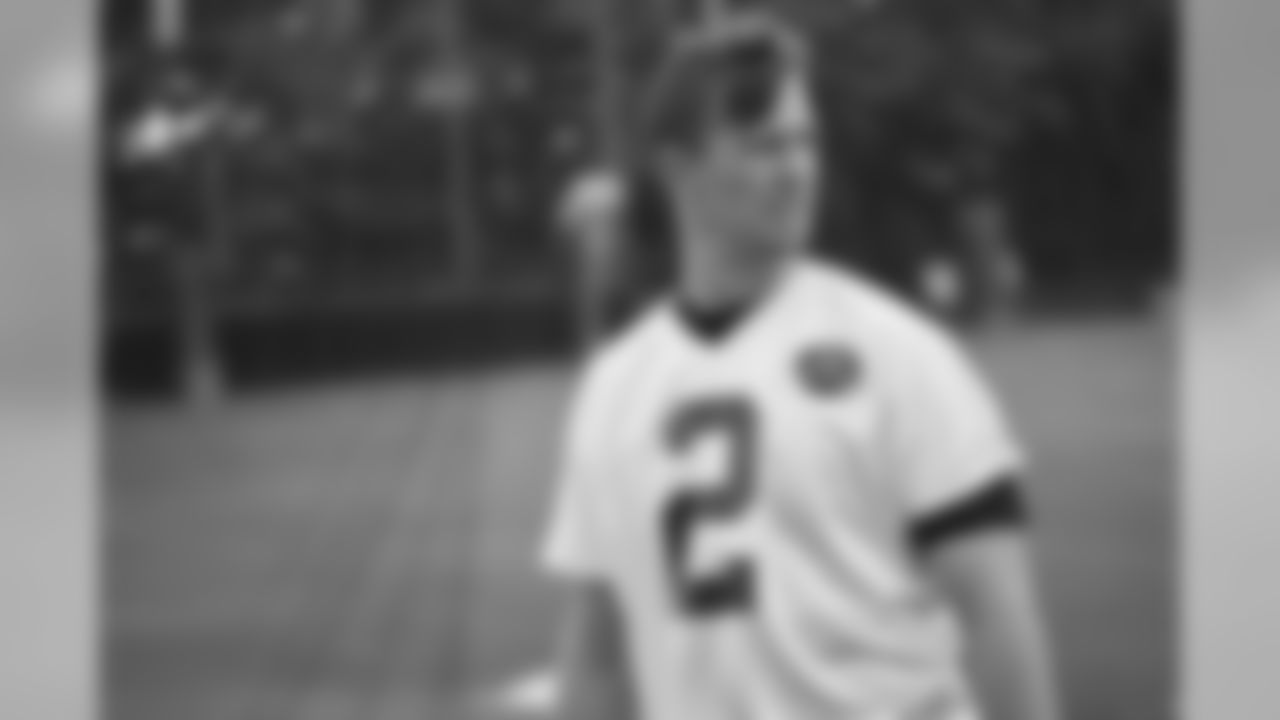
QB Matt Ryan
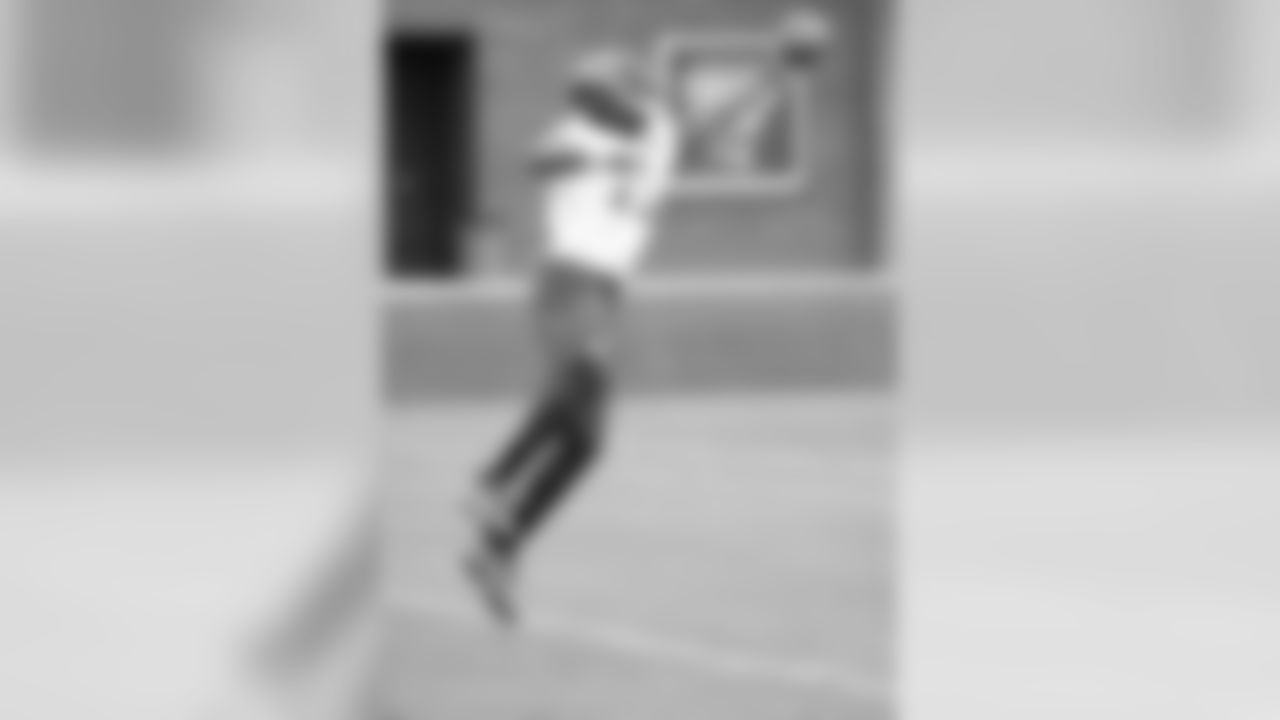
WR Julio Jones
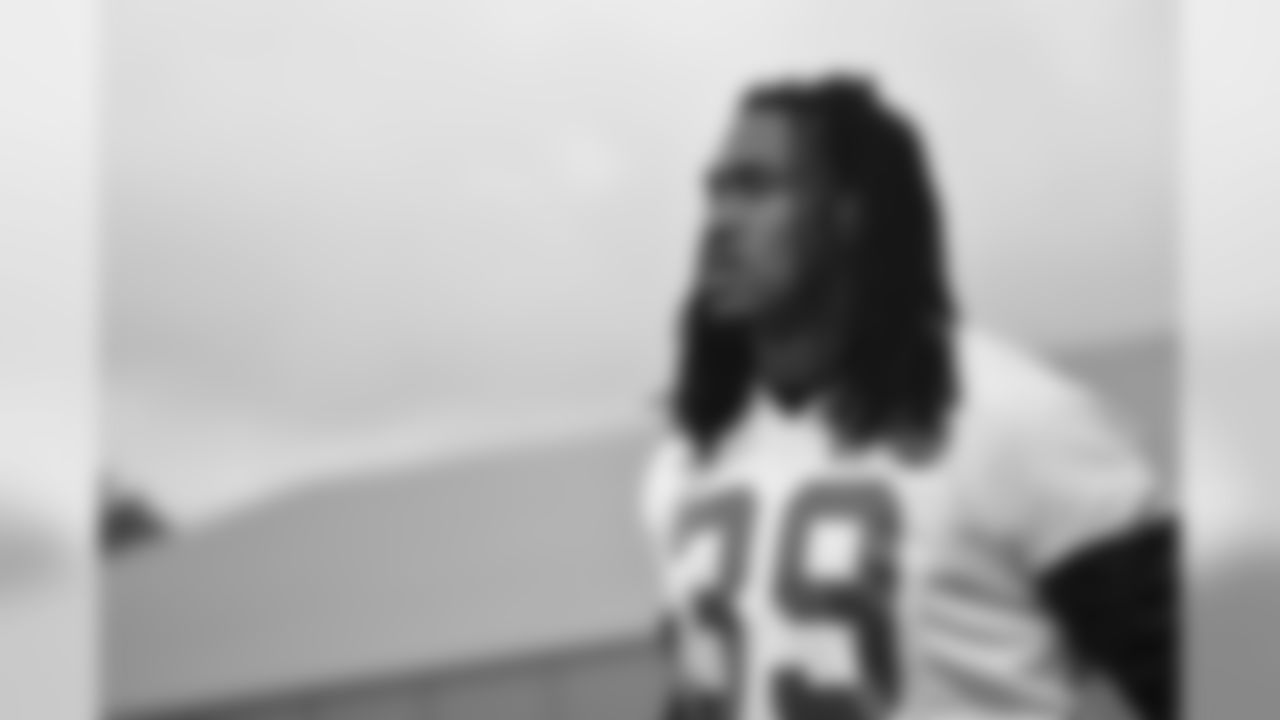
RB Steven Jackson
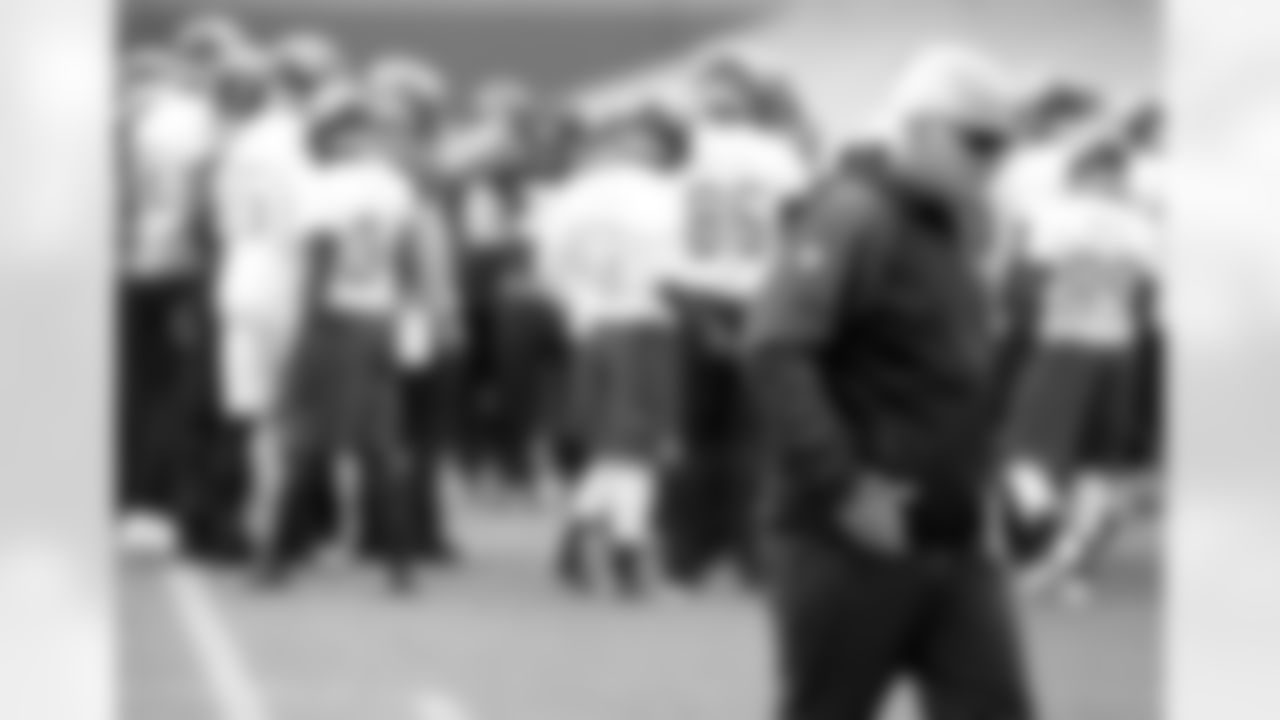
Head coach, Mike Smith
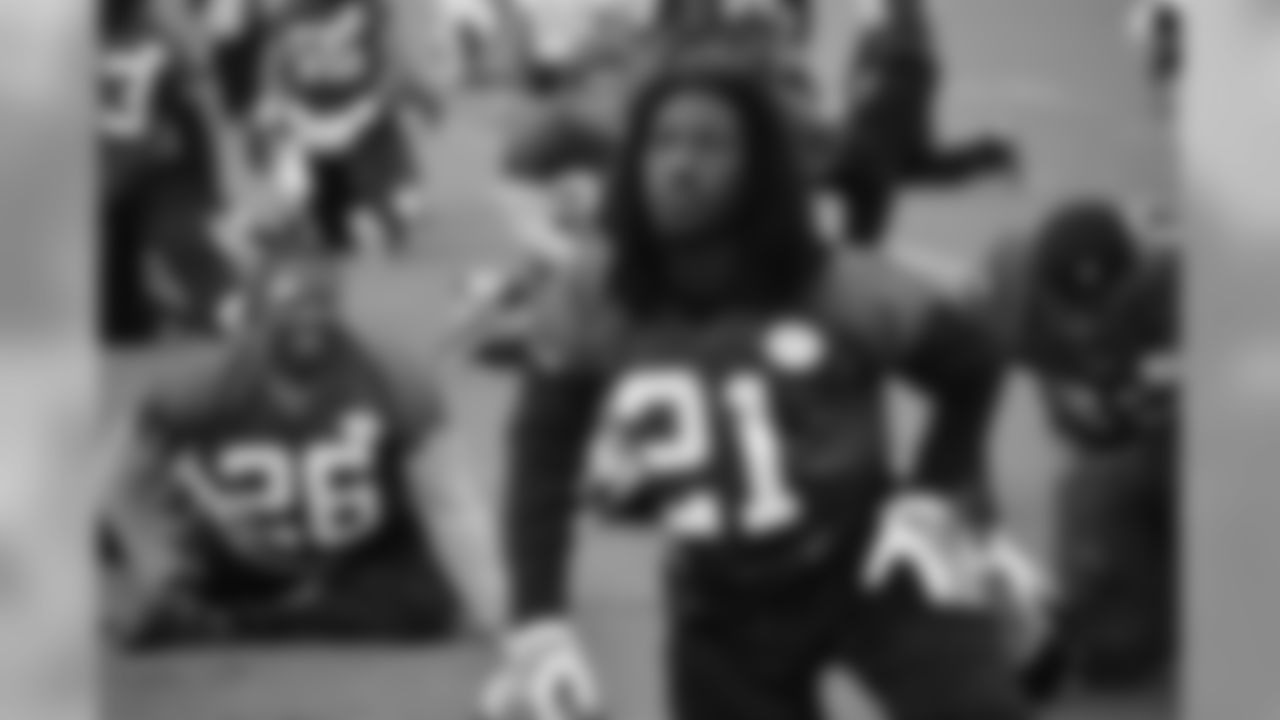
CB Desmond Trufant
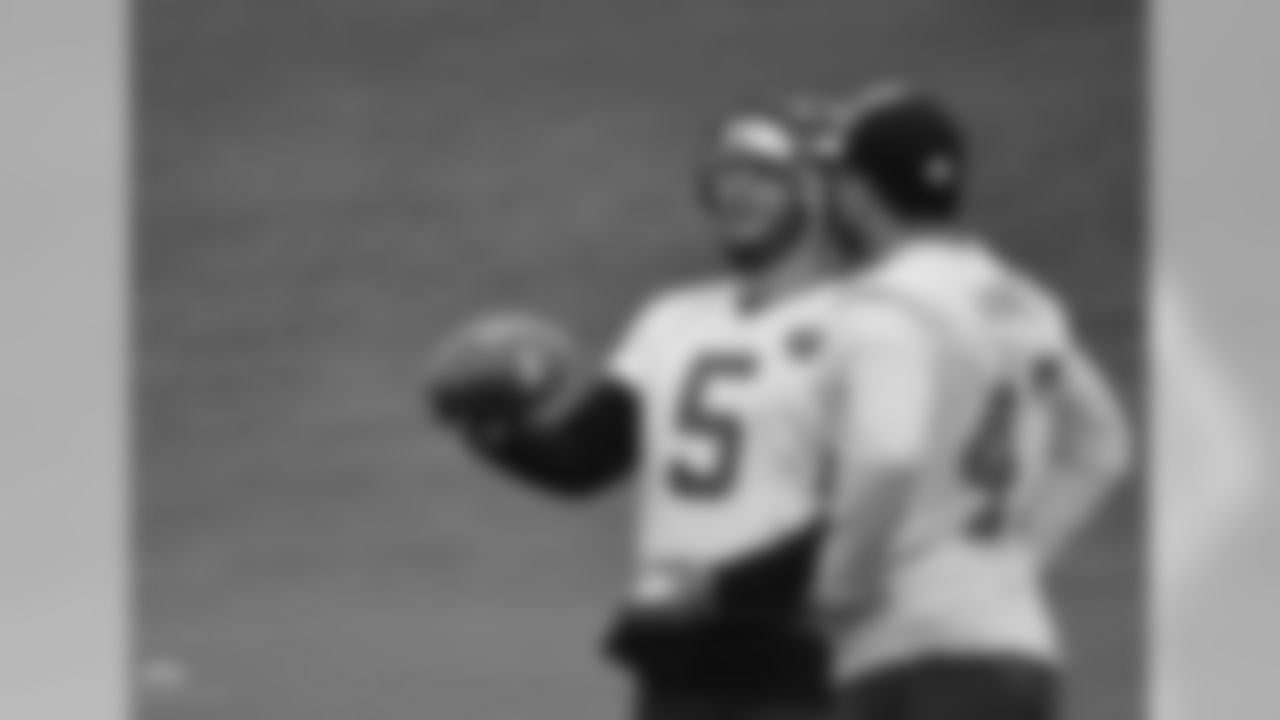
P Matt Bosher and LS Josh Harris
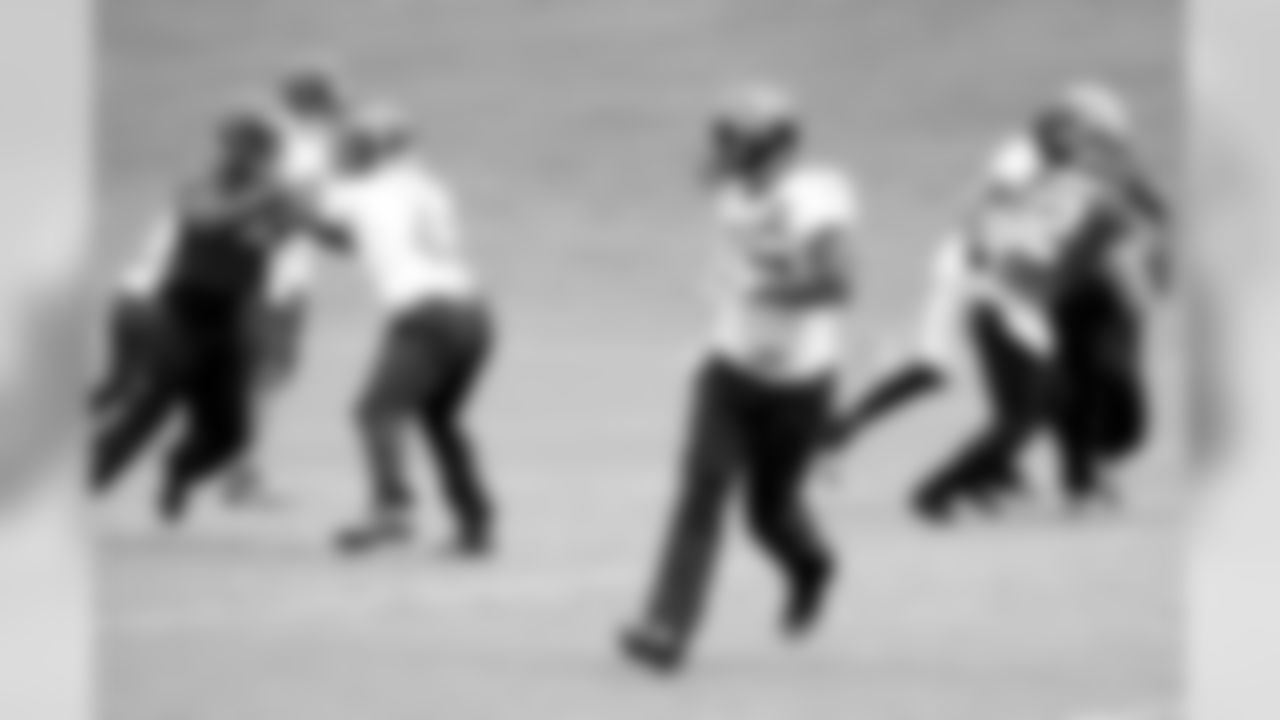
RB Antone Smith
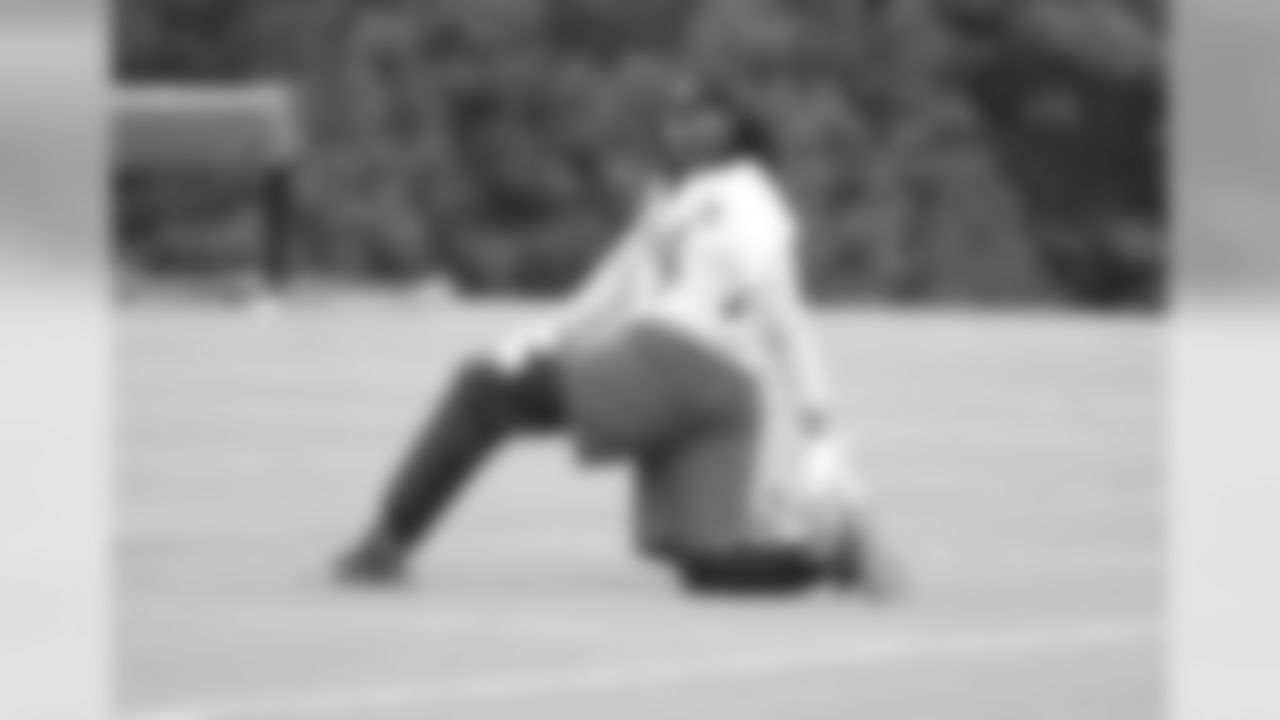
WR Roddy White
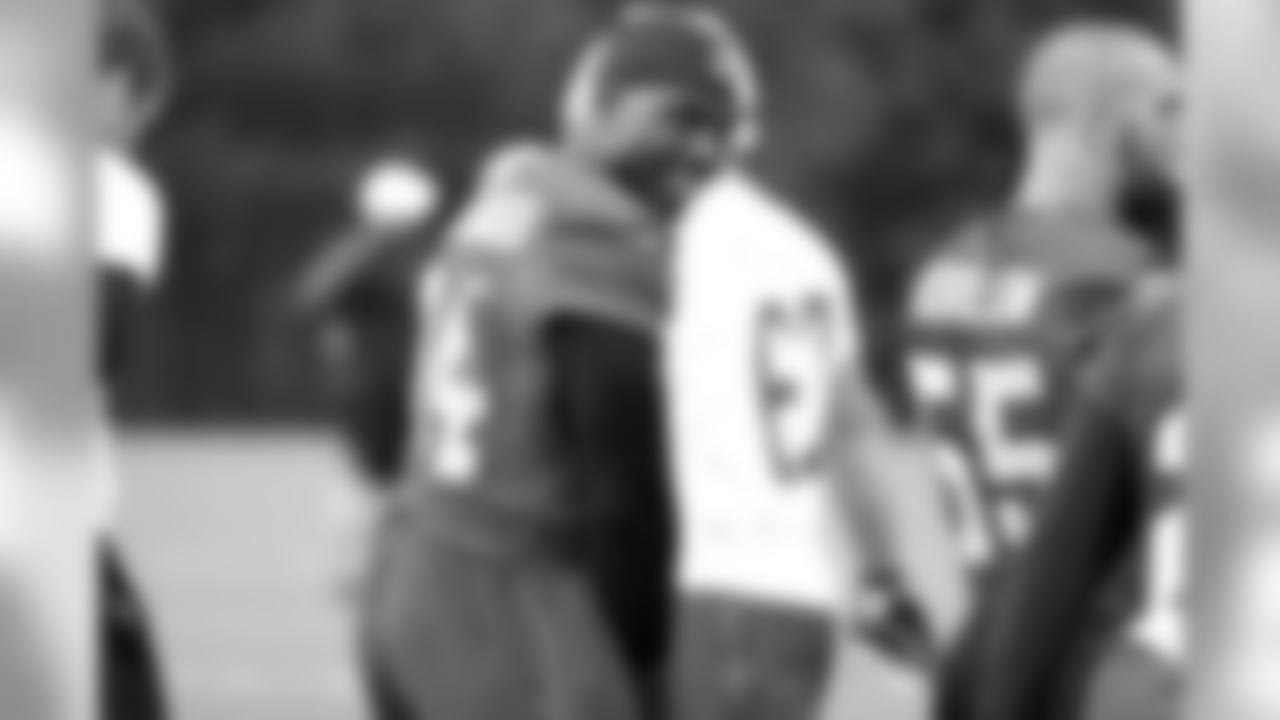
DE Jonathan Massaquoi
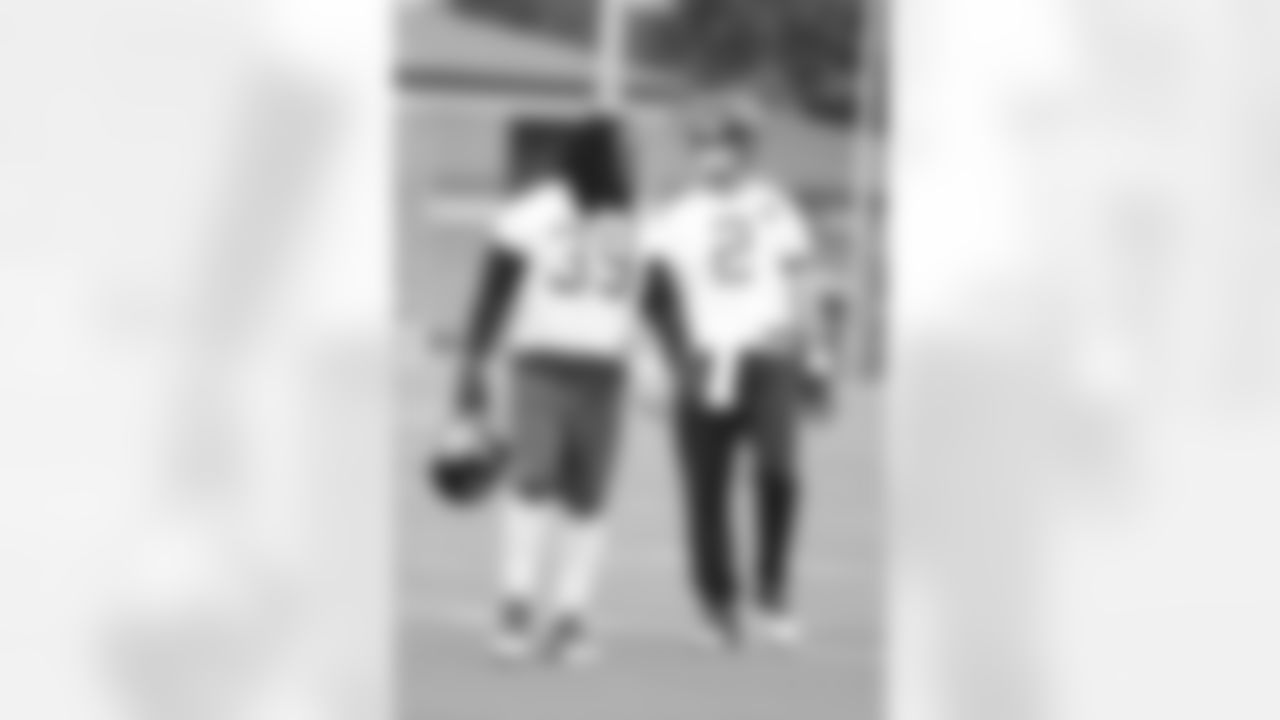
RB Steven Jackson and QB Matt Ryan
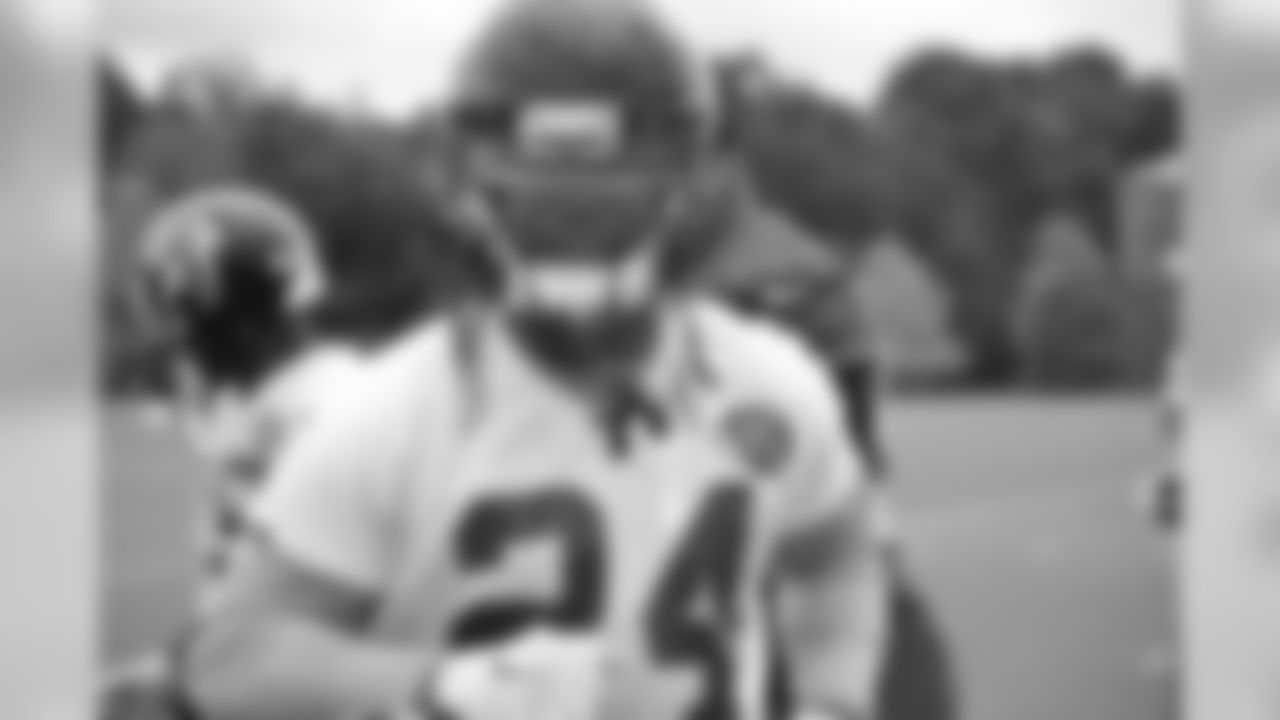
RB Devonta Freeman
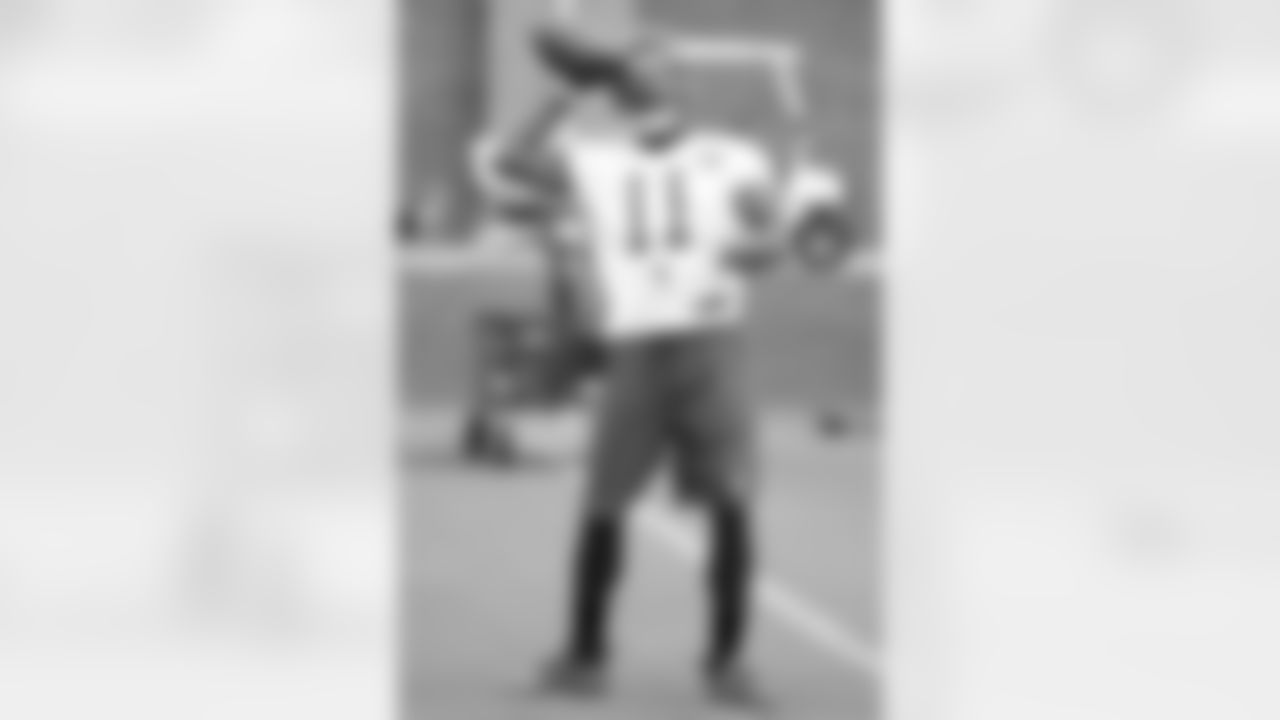
WR Julio Jones
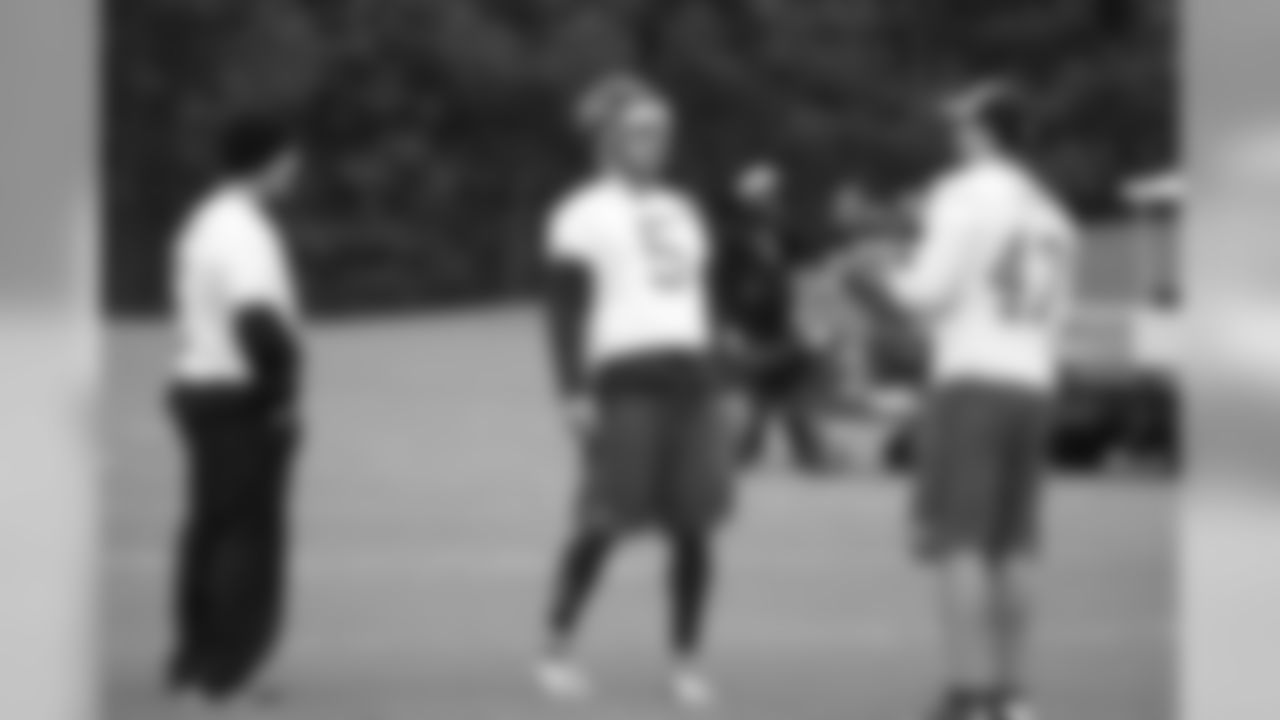
K Matt Bryant, P Matt Bosher and LS Josh Harris
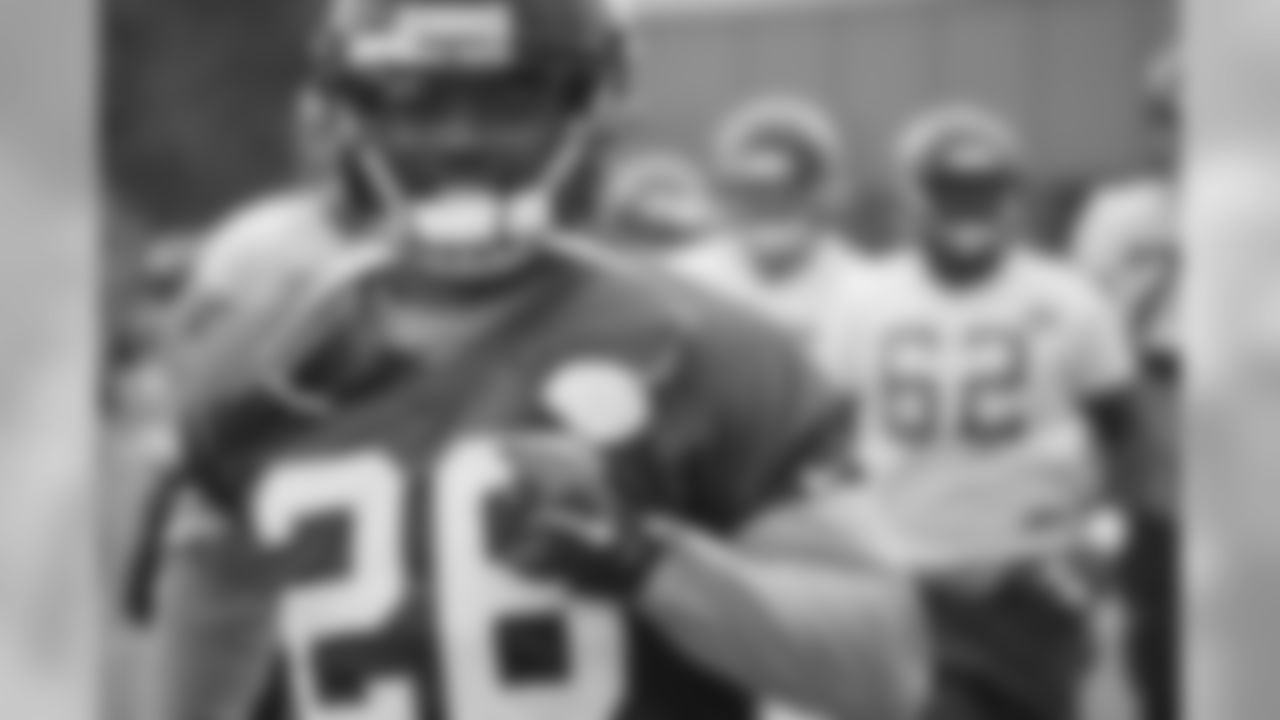
CB Josh Wilson
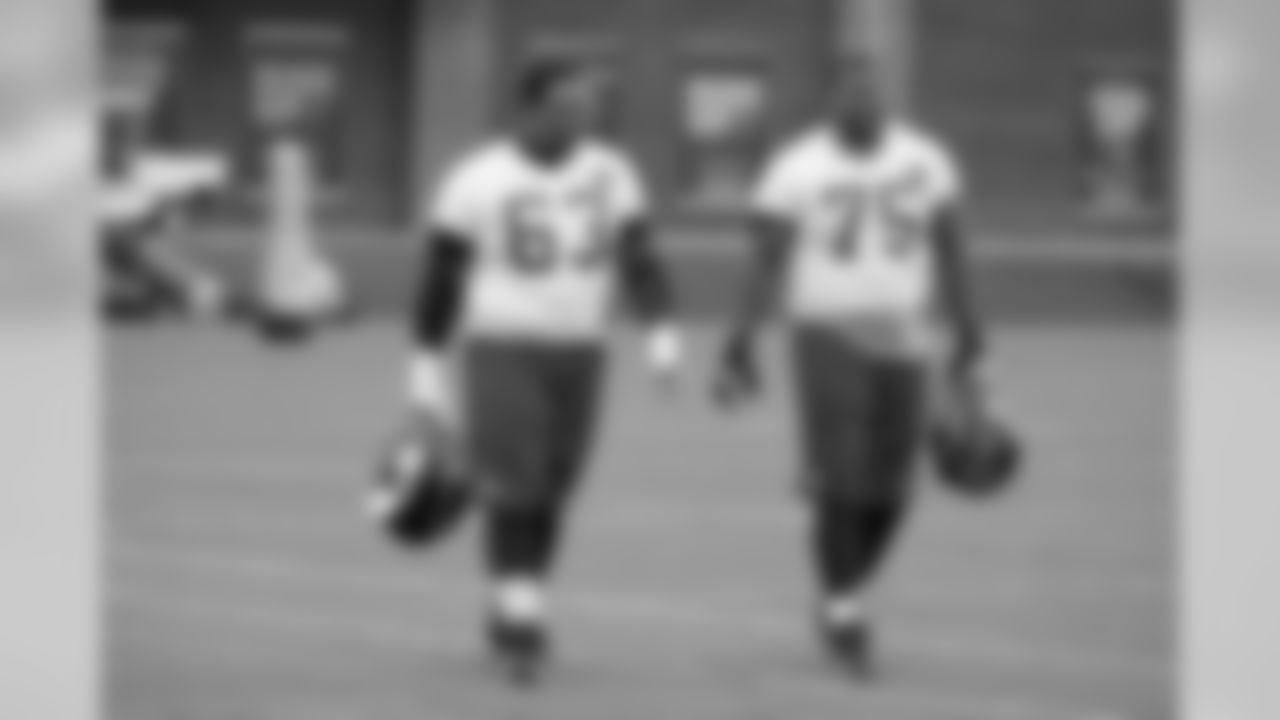
G Justin Blalock and G Jon Asamoah
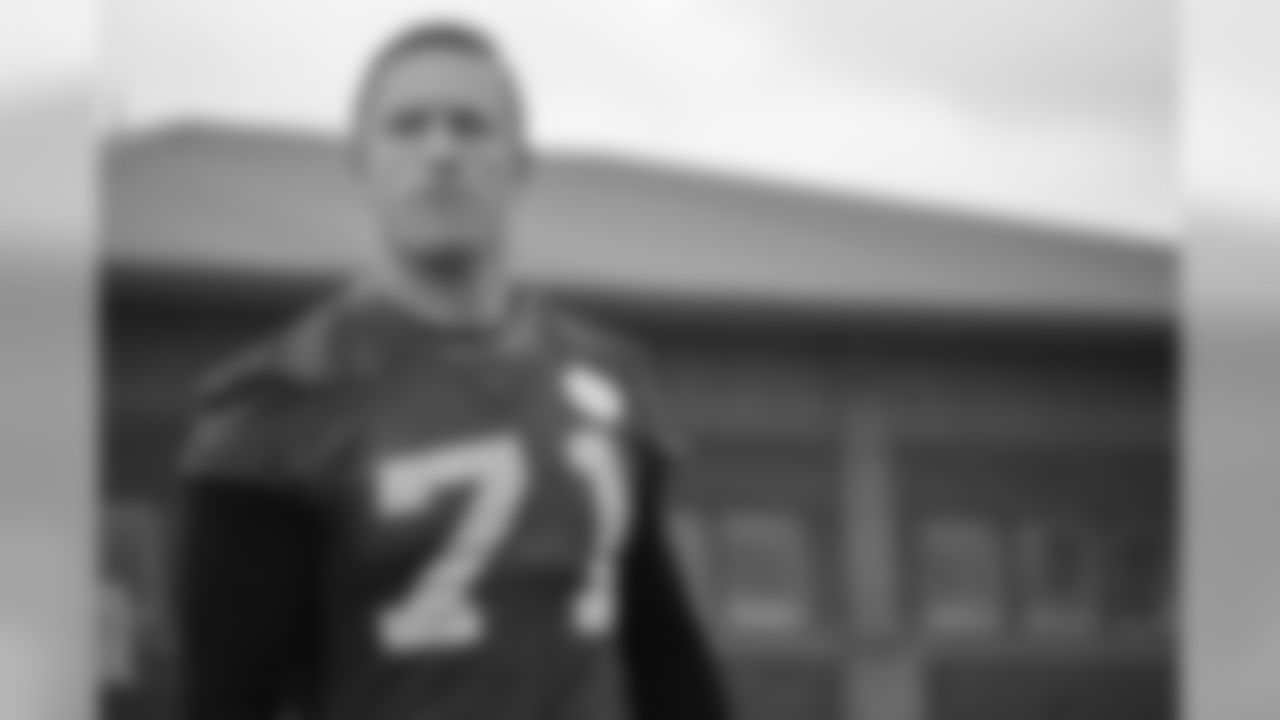
DE Kroy Biermann
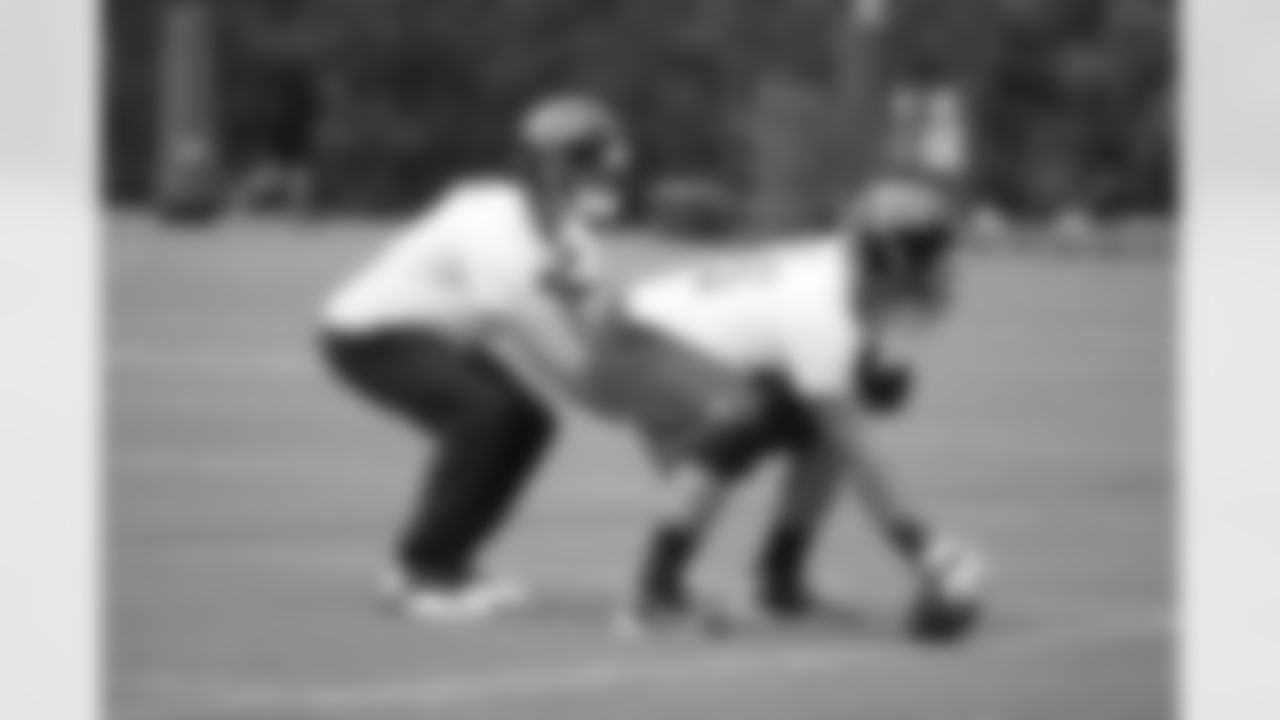
QB Matt Ryan and C Peter Konz
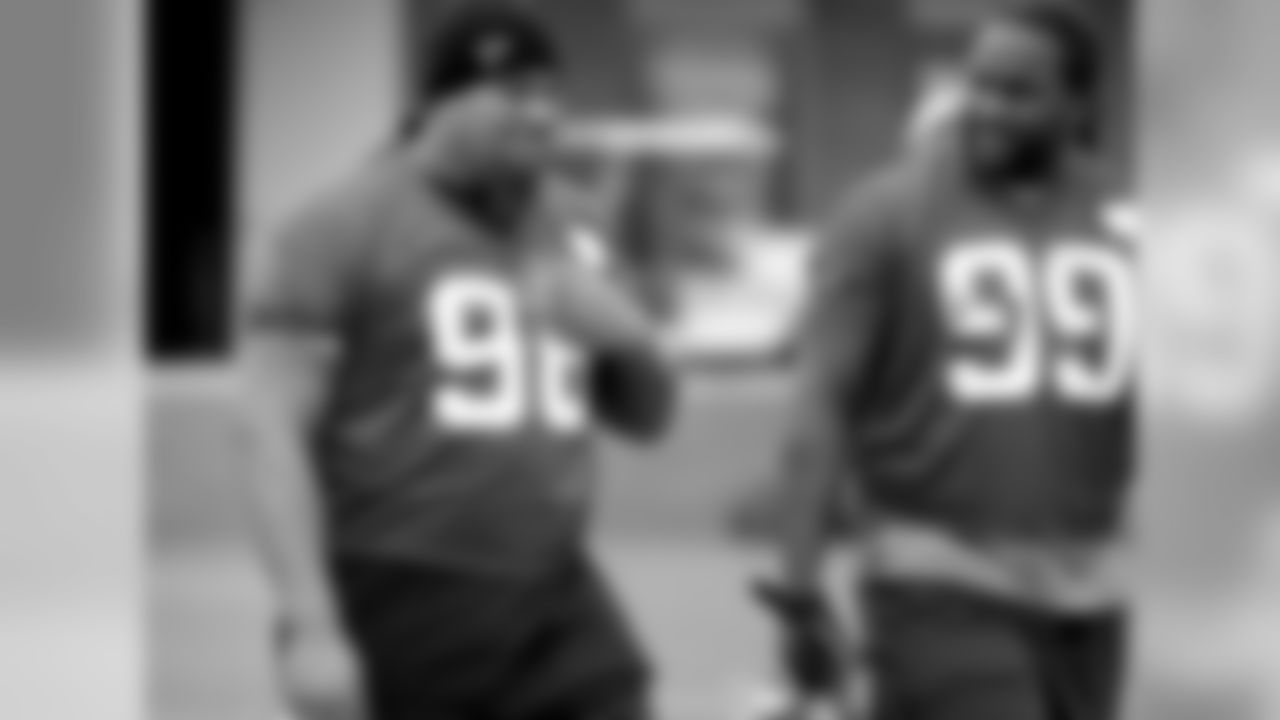
DT Paul Soliai and DE Tyson Jackson
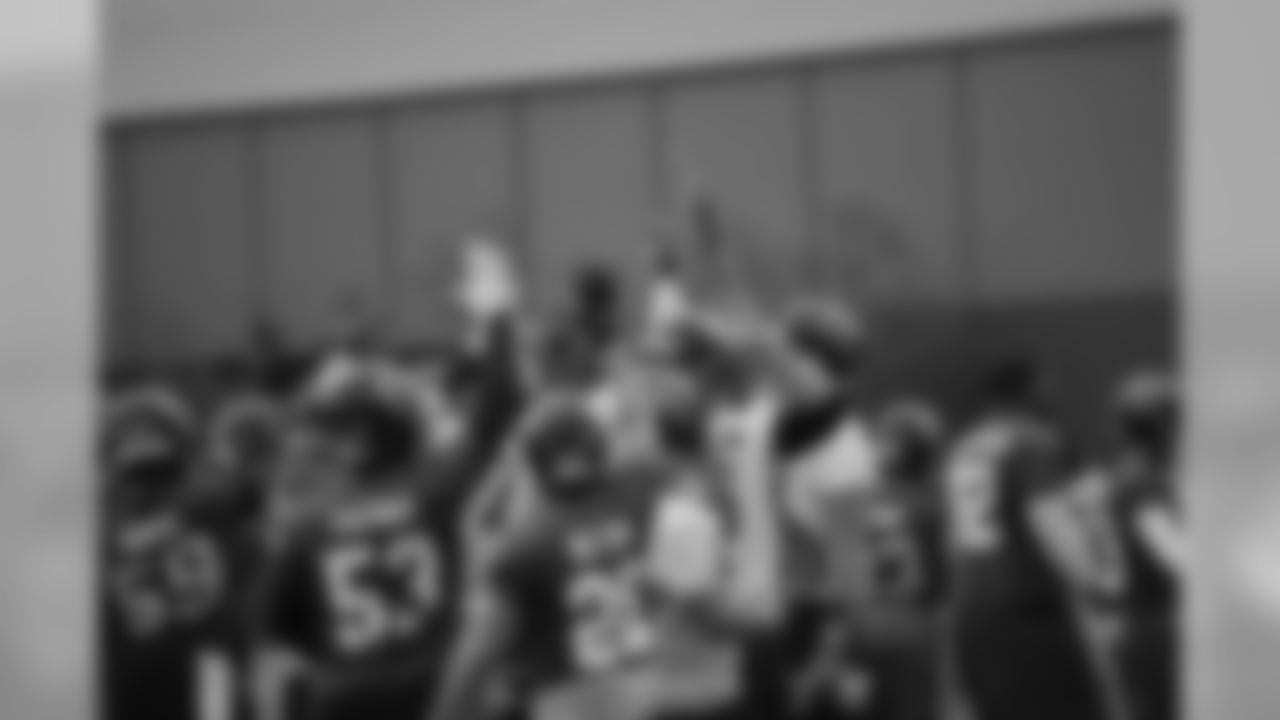
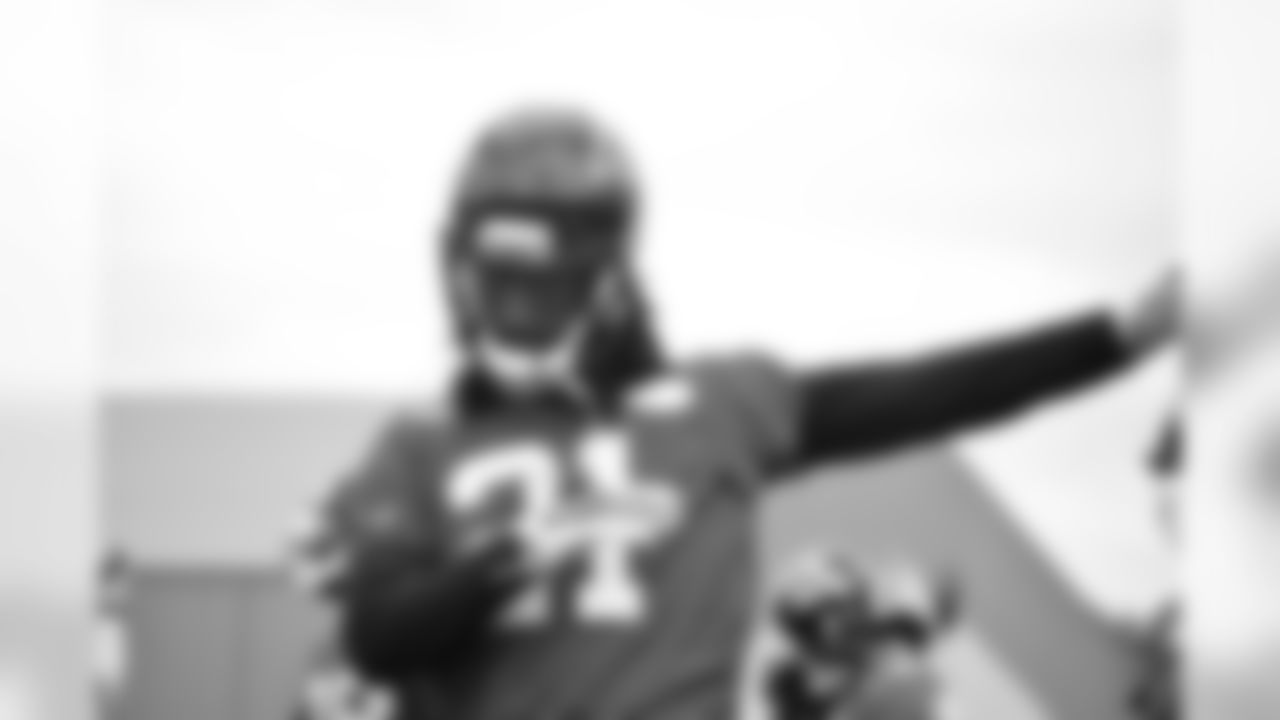
CB Desmond Trufant
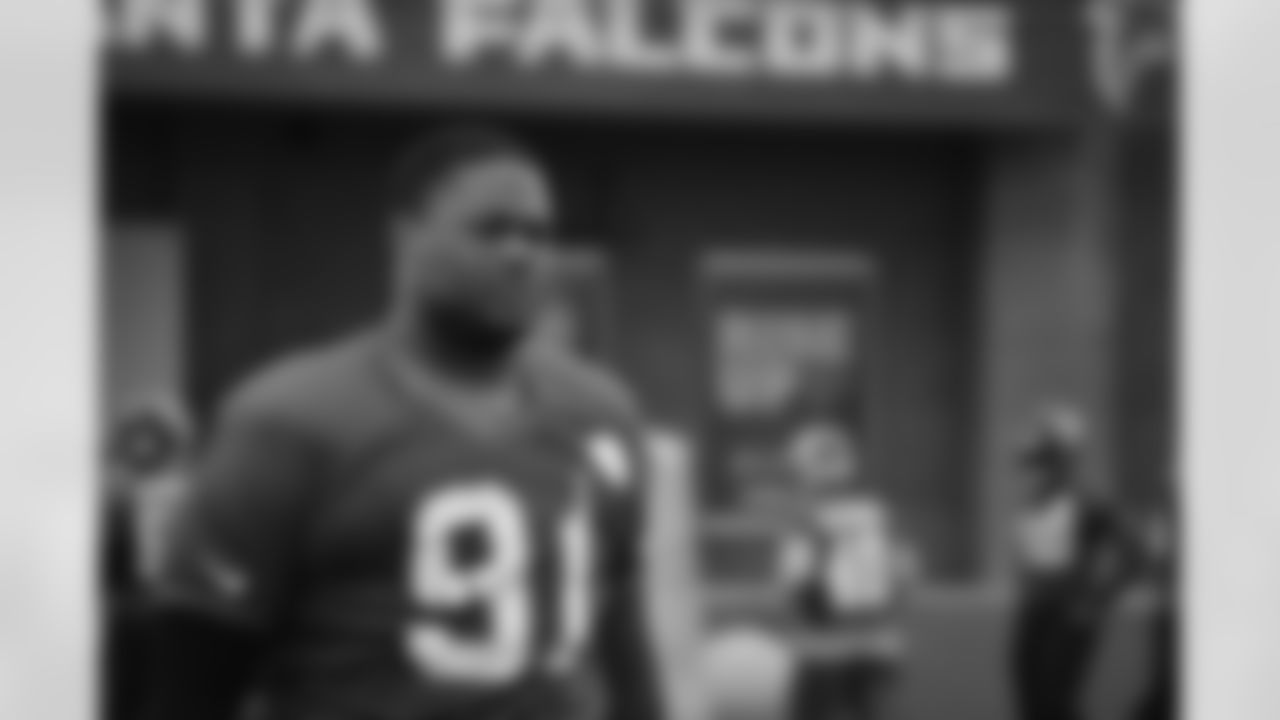
DT Corey Peters
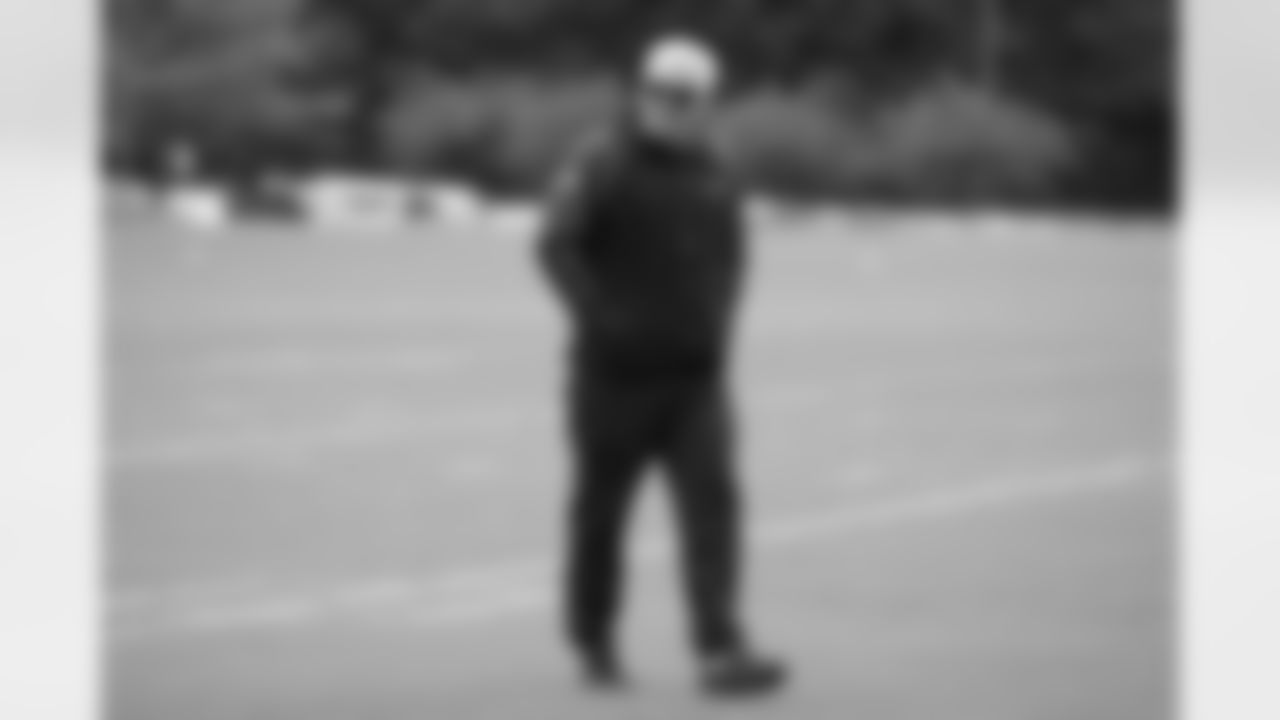
Head coach, Mike Smith
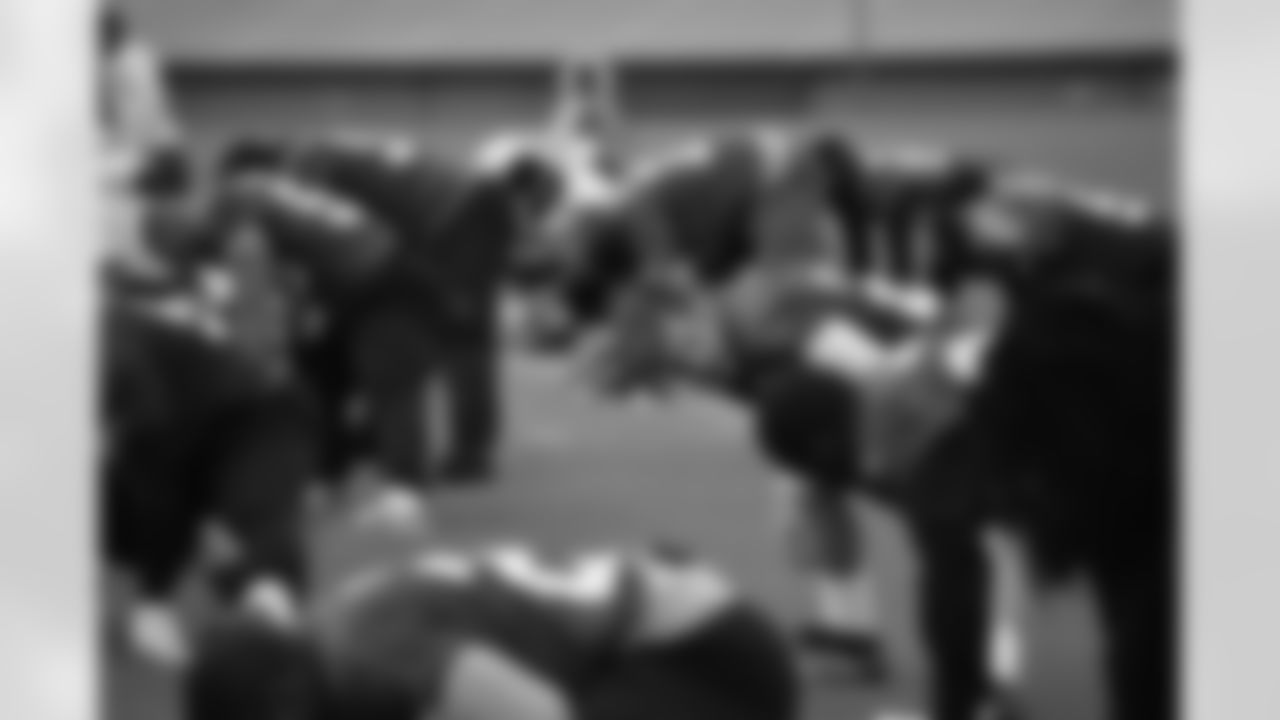
S Sean Baker
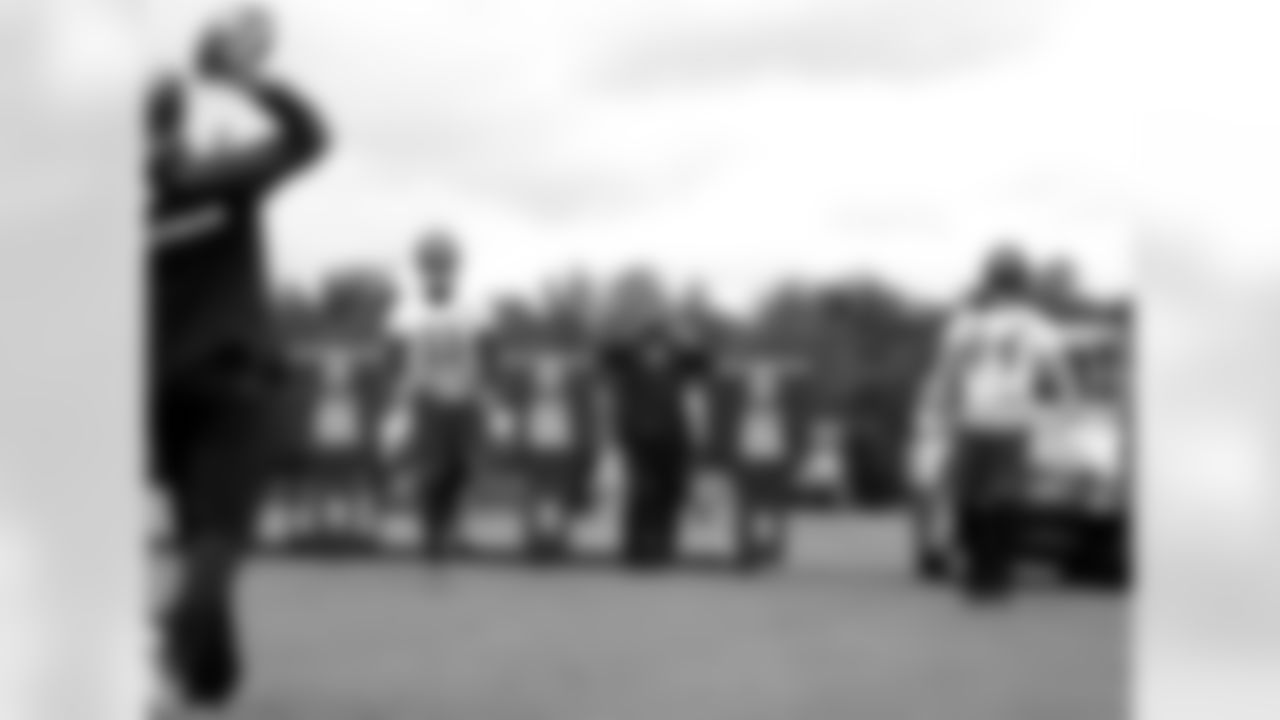
WR Julio Jones and WR Roddy White warm up on Thursday
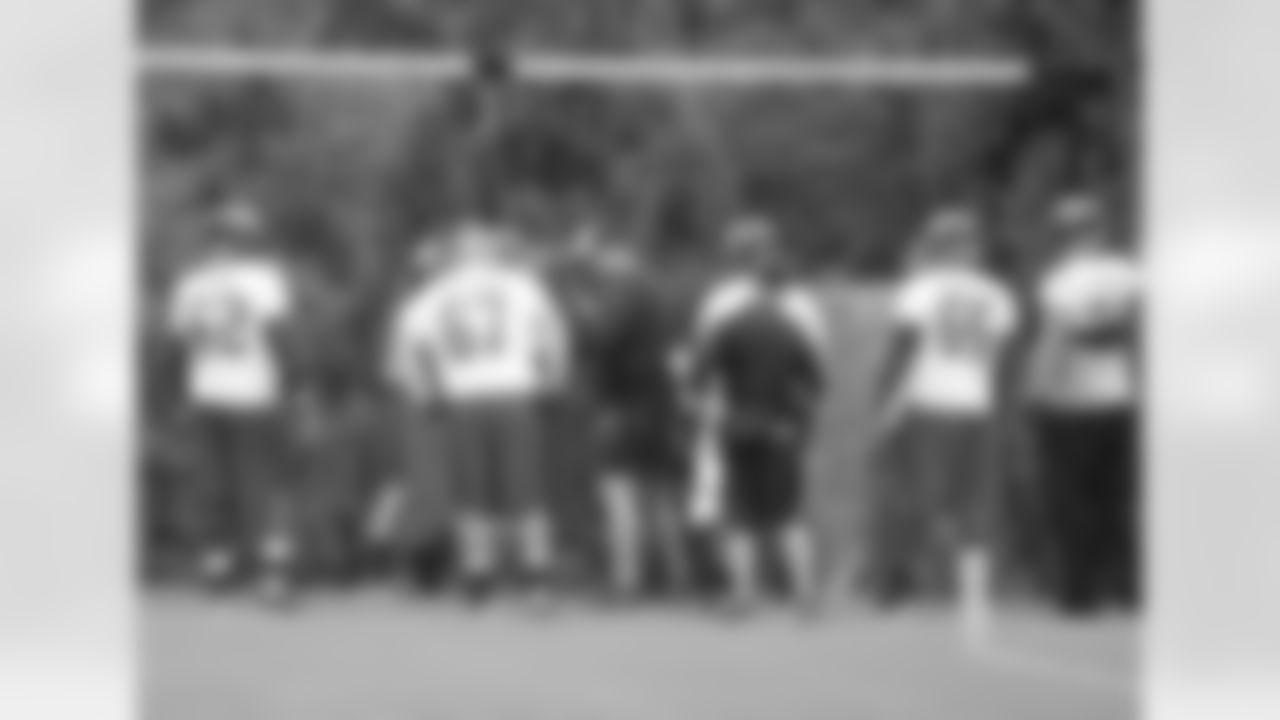
O-Line drills with offensive line coach, Mike Tice
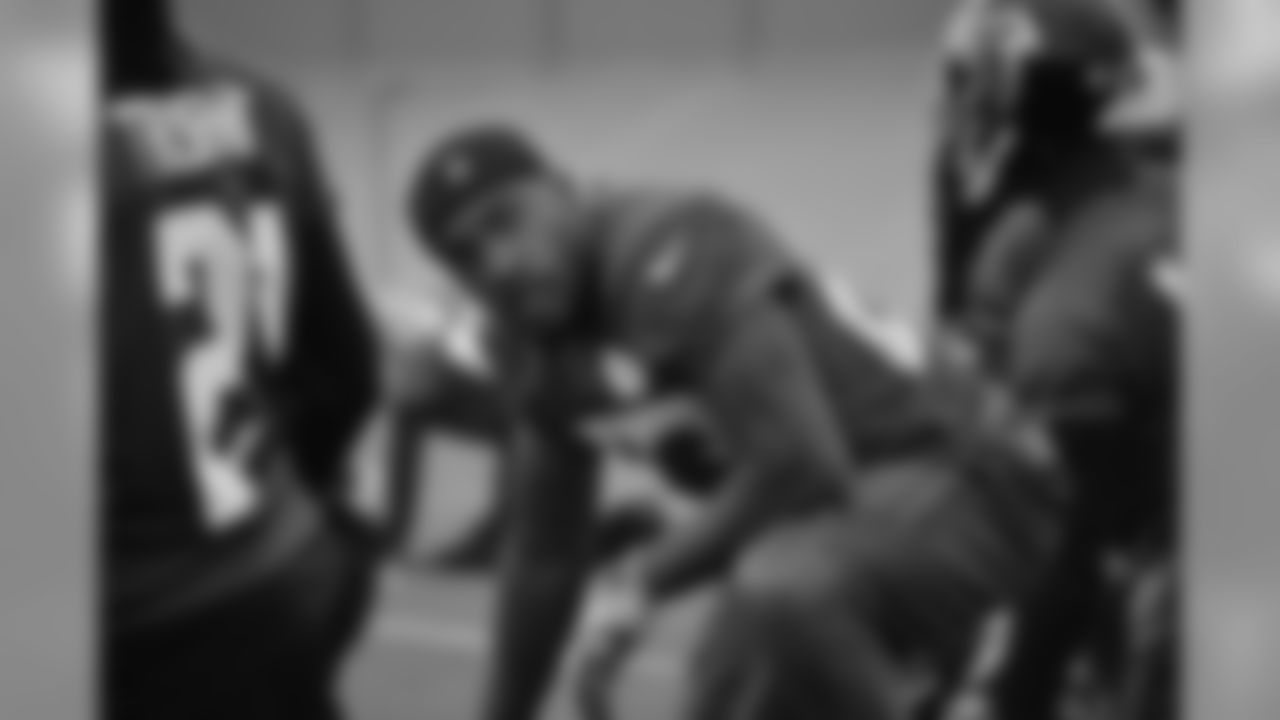
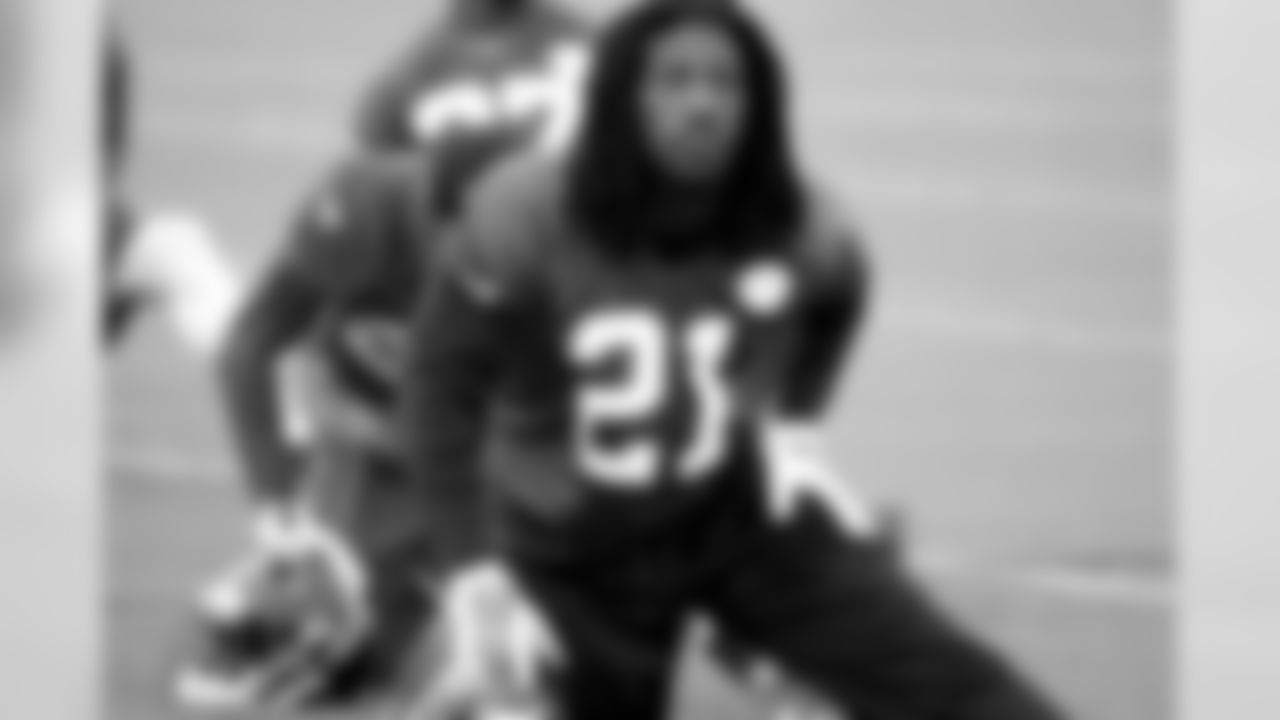
CB Desmond Trufant
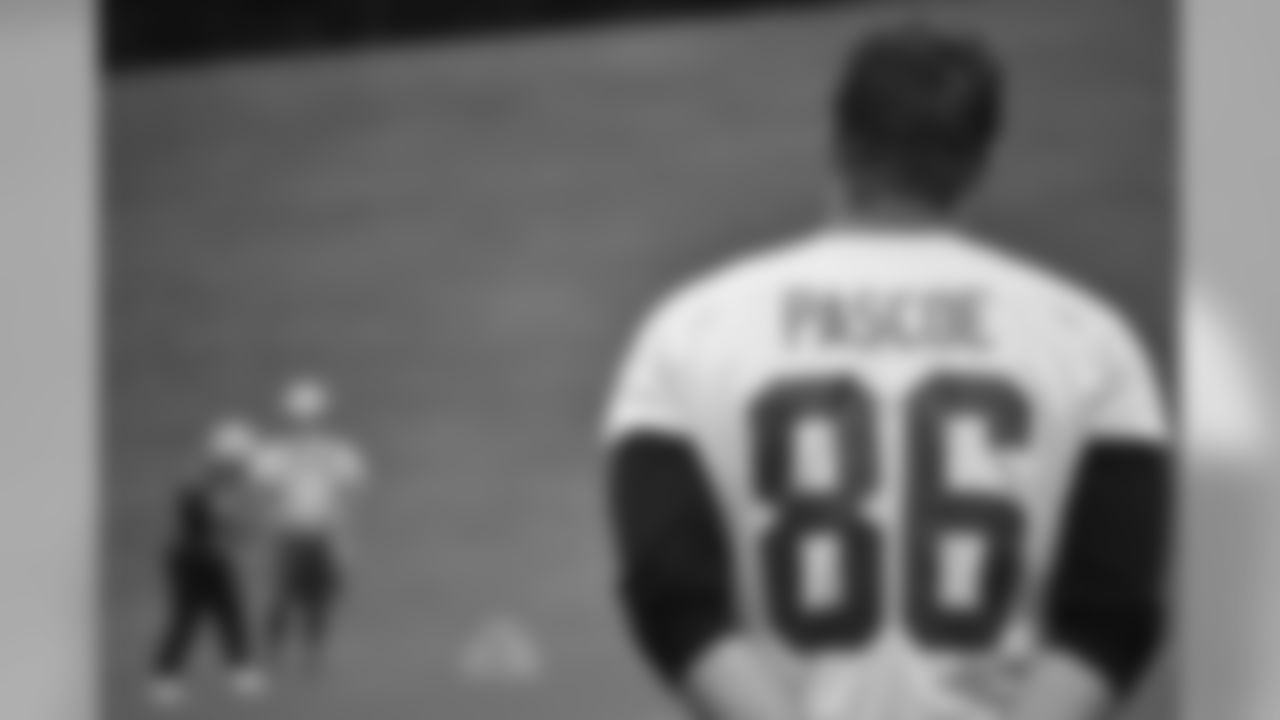
TE Bear Pascoe
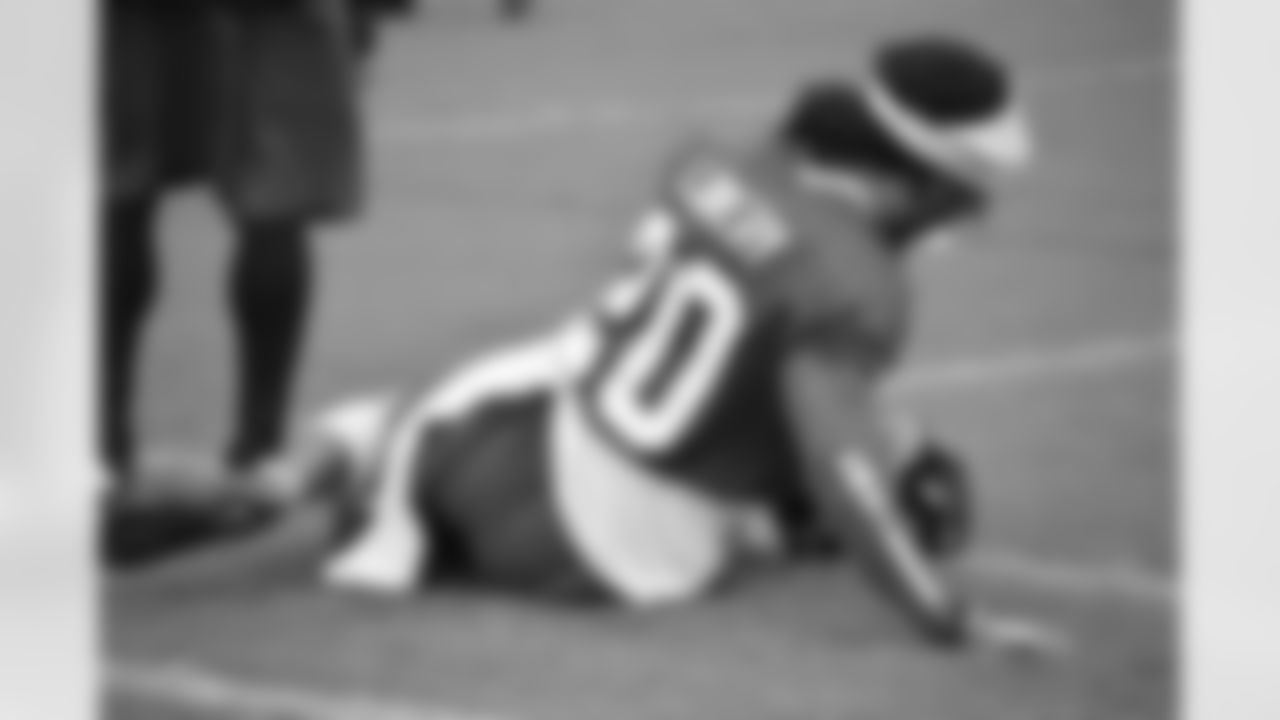
FS Dwight Lowery
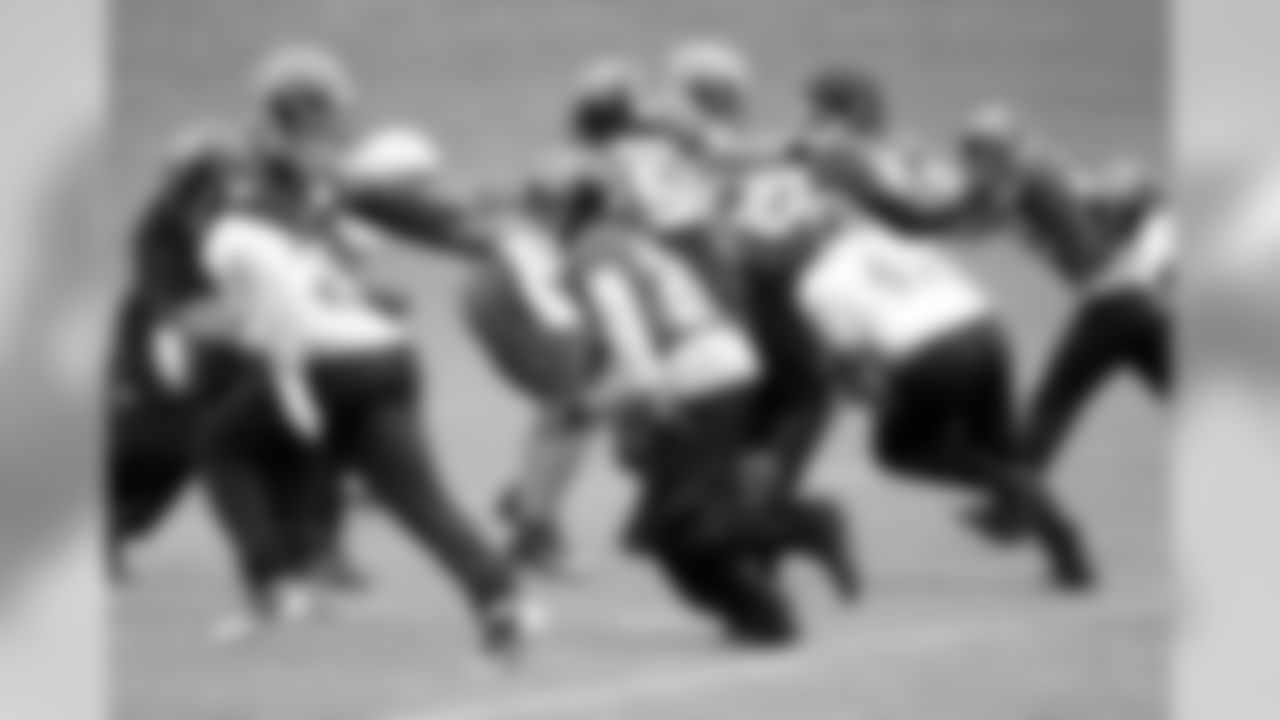
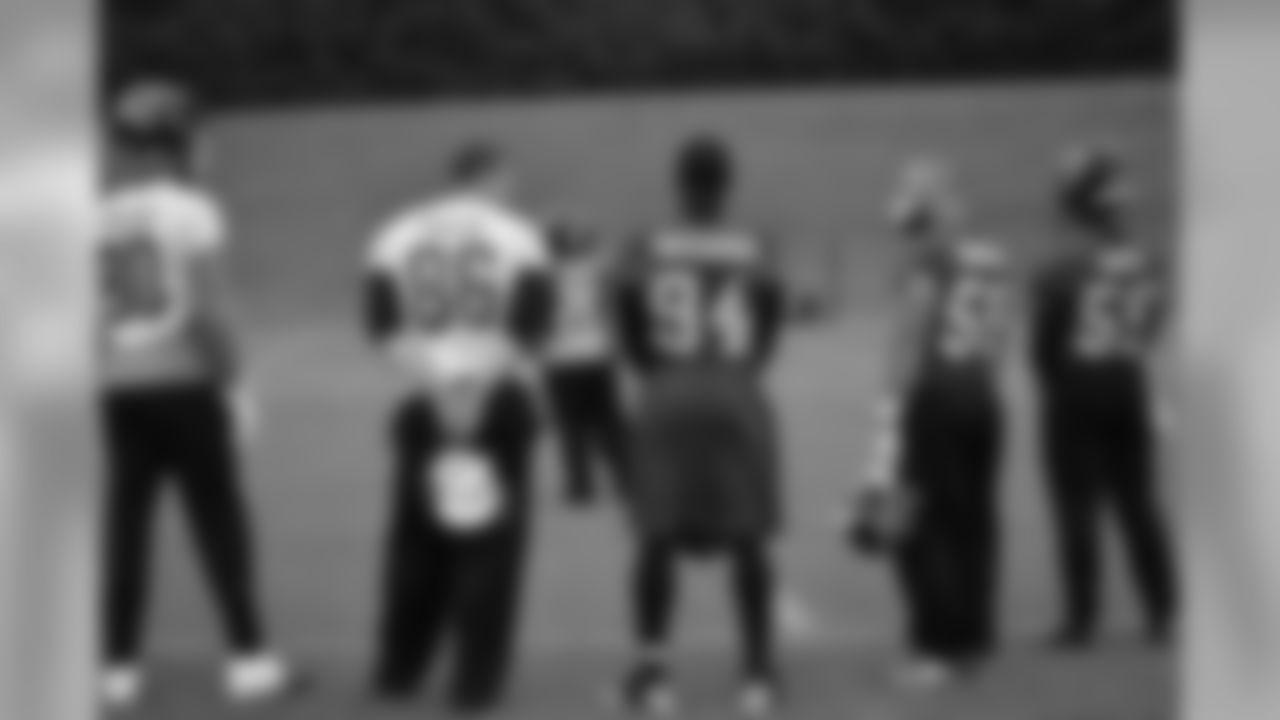
TE Levine Toilolo, TE Bear Pascoe, DE Jonathan Massaquoi, LB Paul Worrilow and LB Joplo Bartu
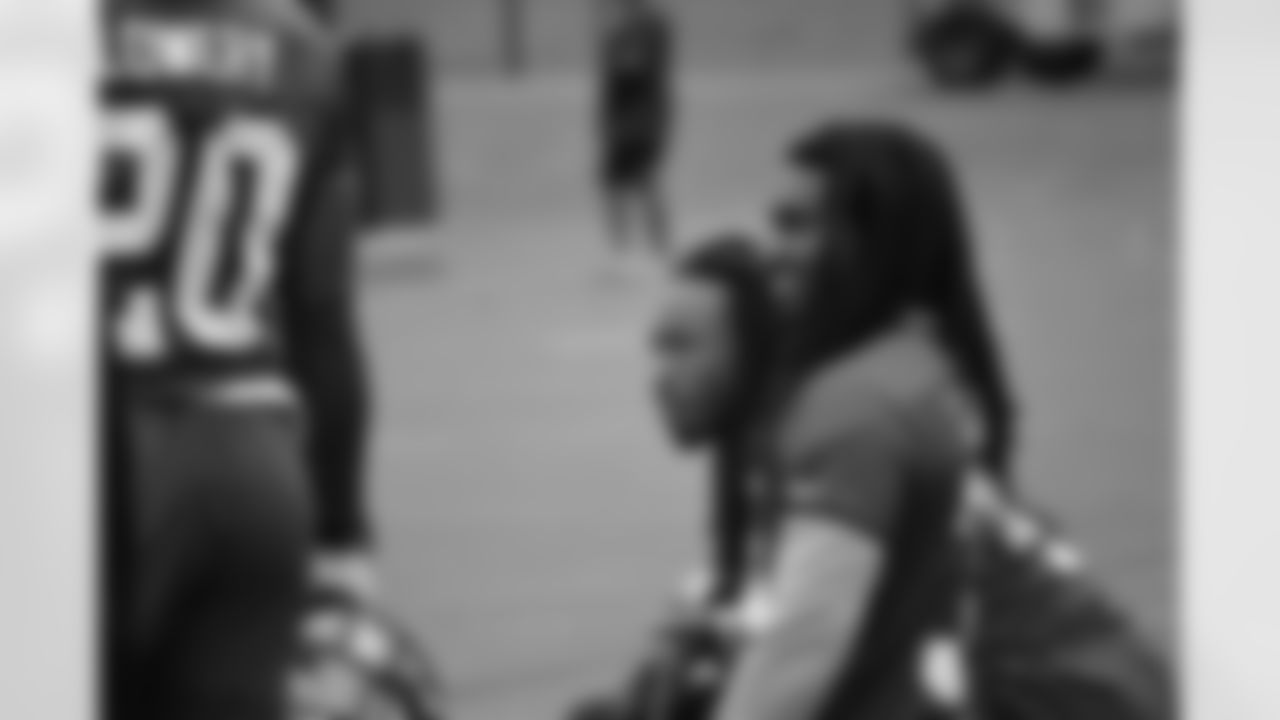
S Kemal Ishmael and S Dezmen Southward
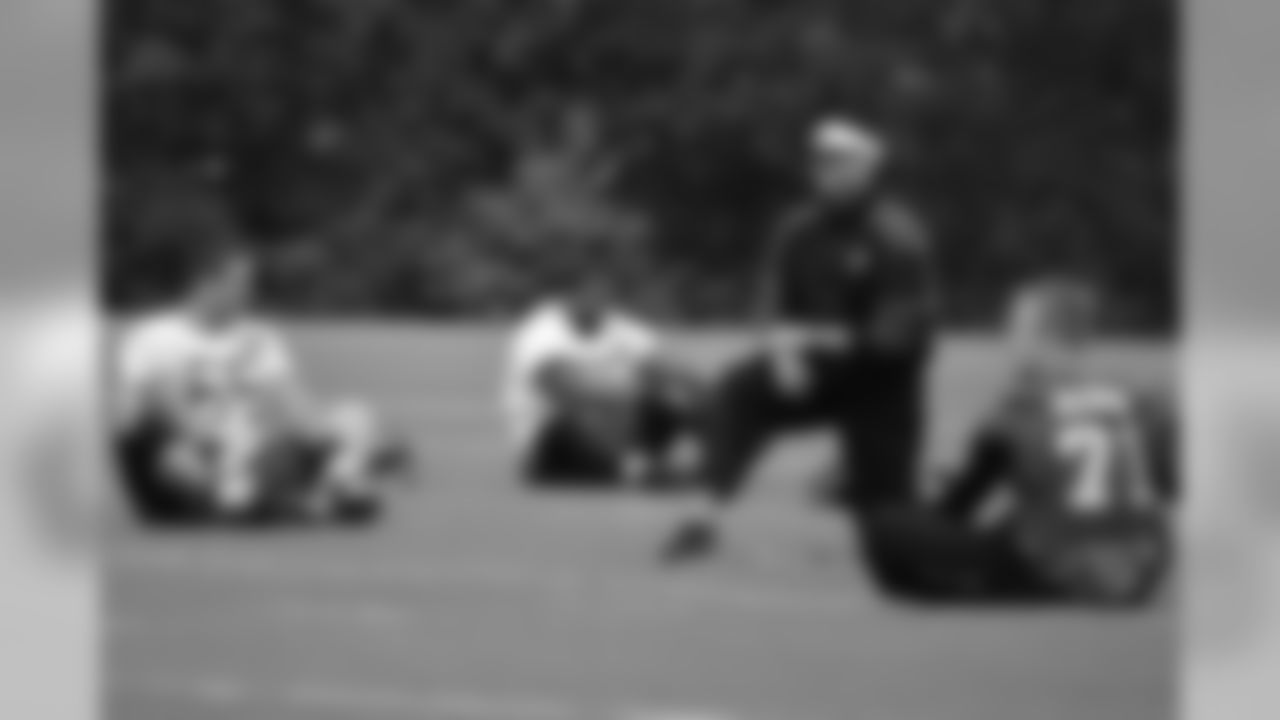
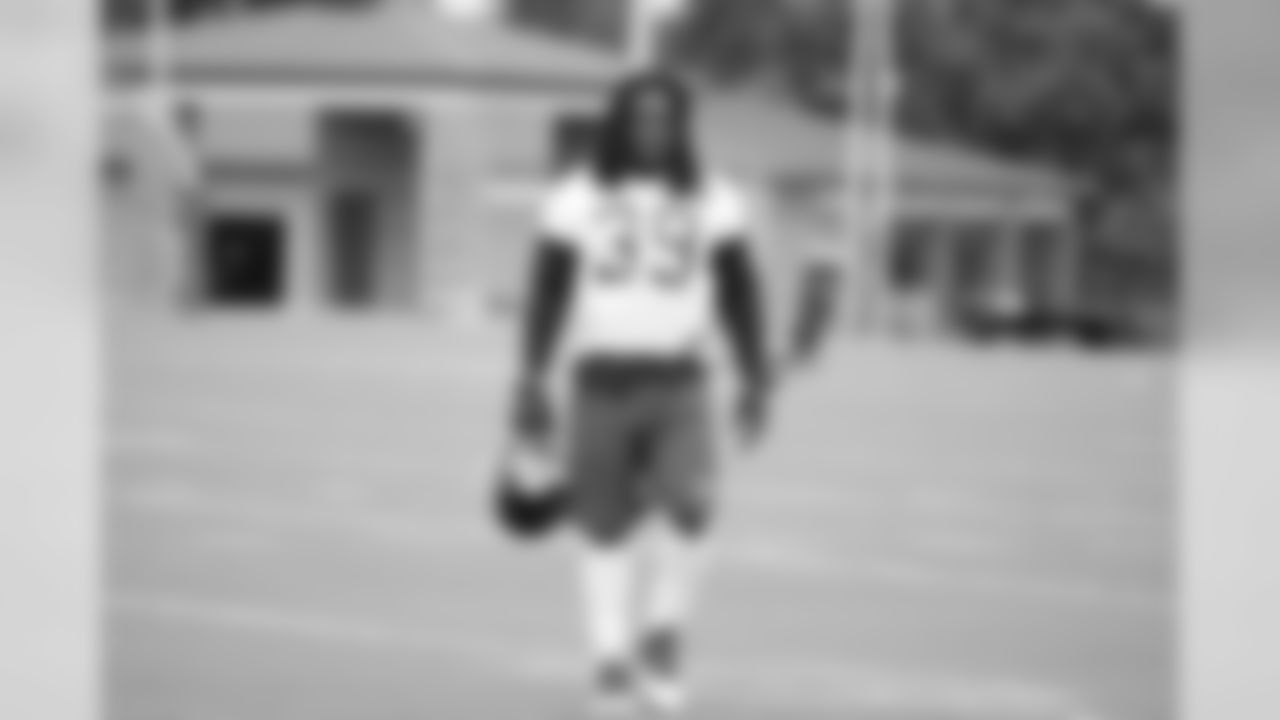
RB Steven Jackson
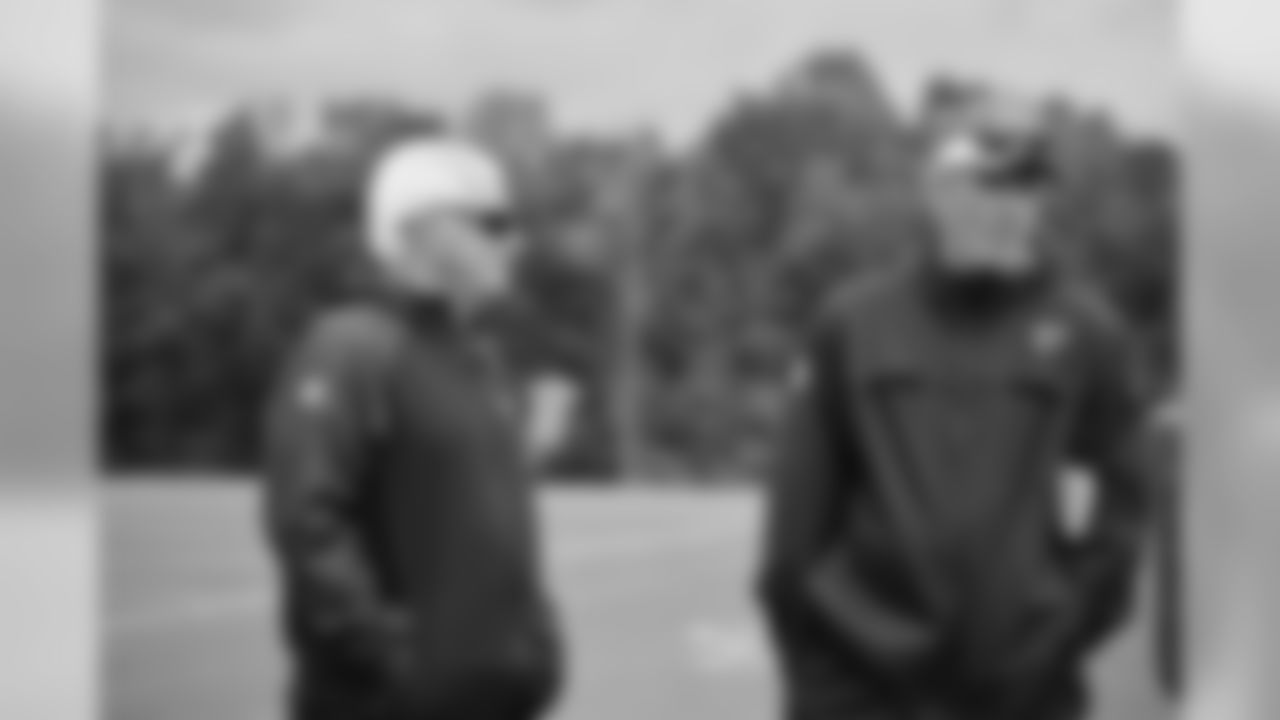
Head Coach Mike Smith and offensive coordinator Dirk Koetter
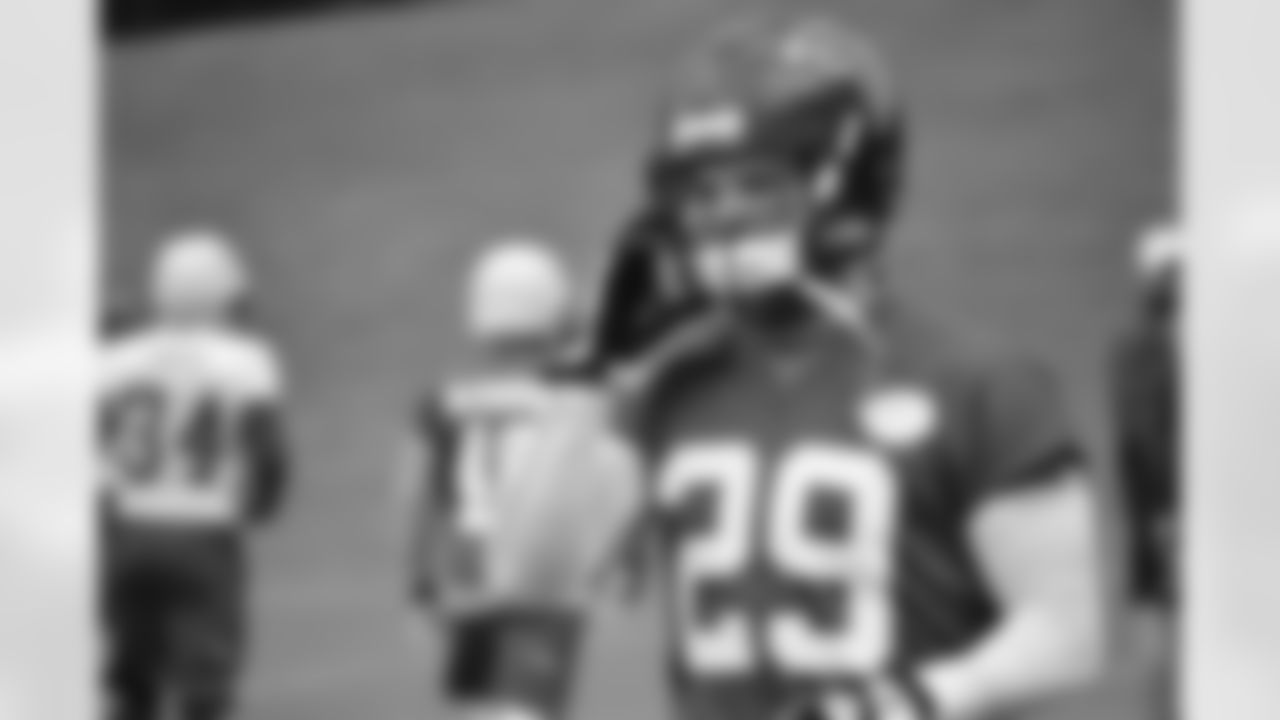
S Sean Baker
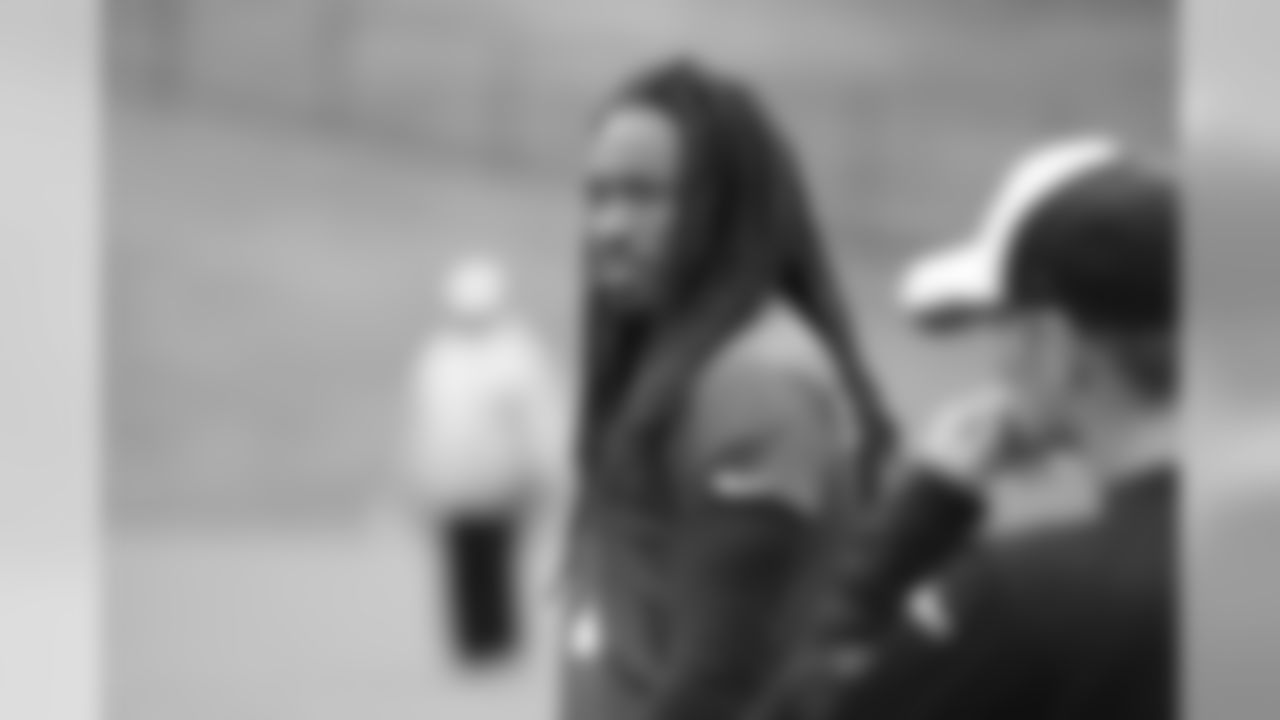
S Dezmen Southward
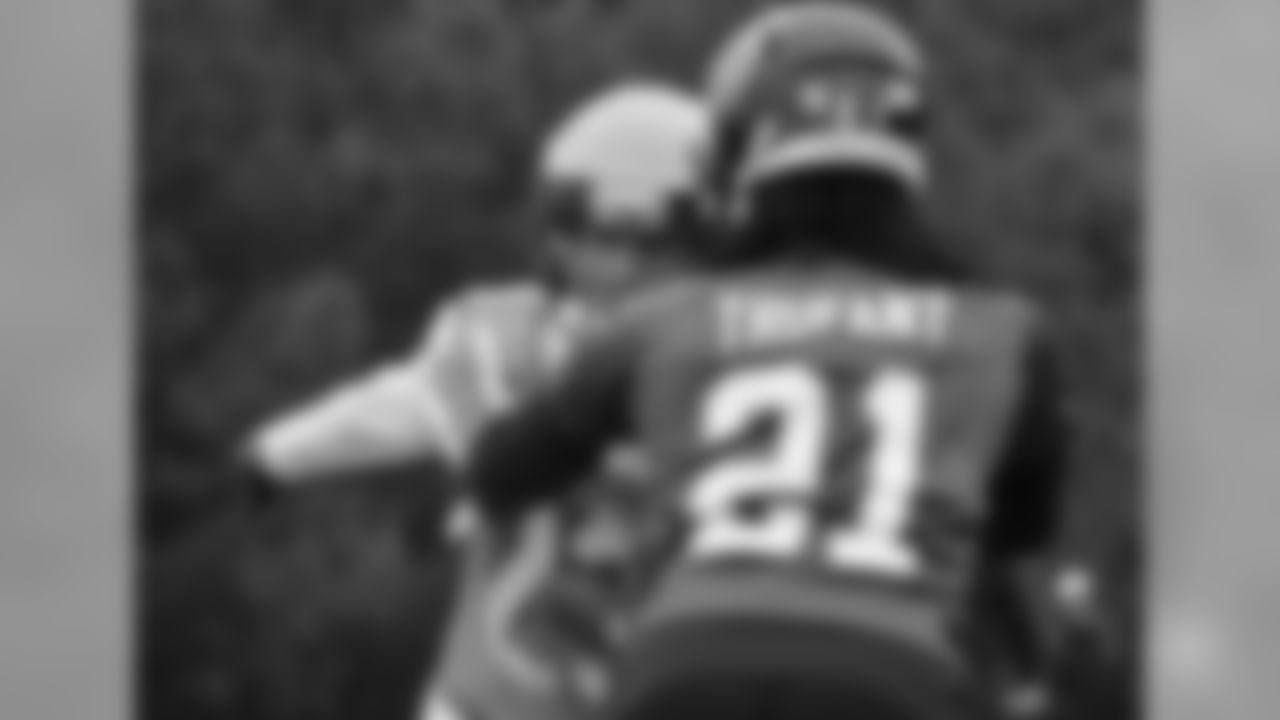
WR Ryan Spadola and CB Desmond Trufant
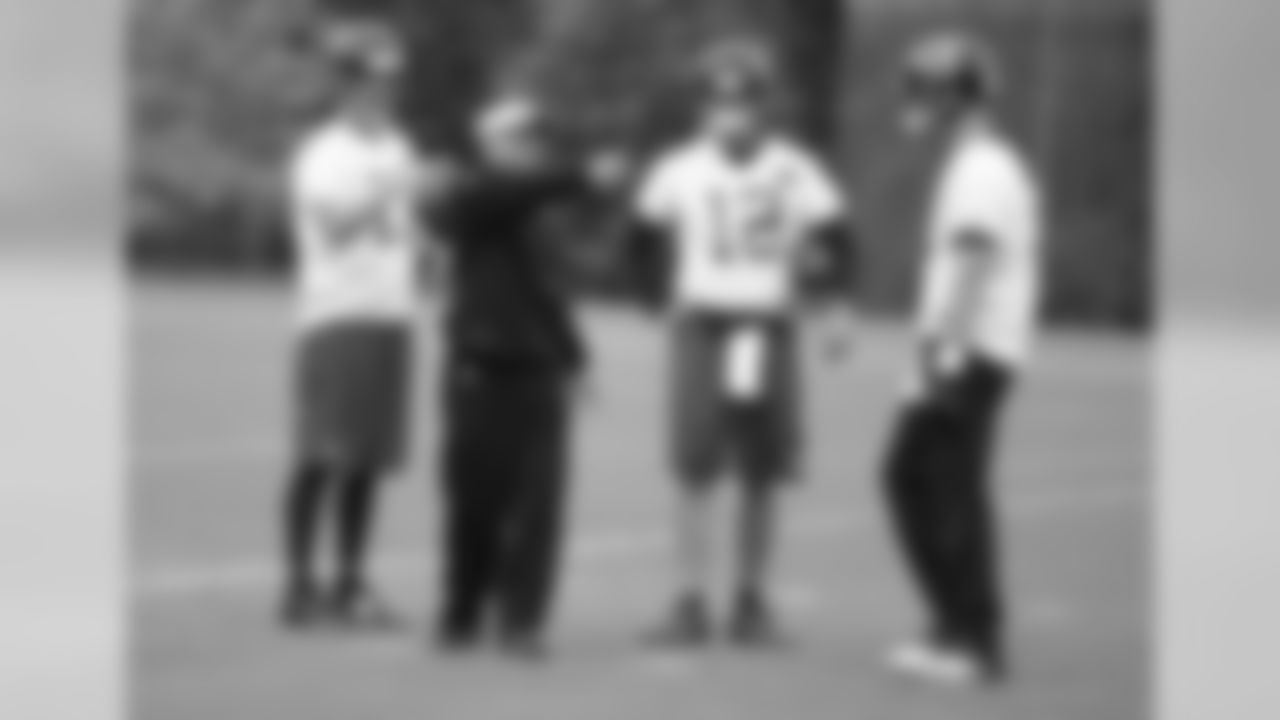
The QBs surround quarterbacks coach, Glenn Thomas
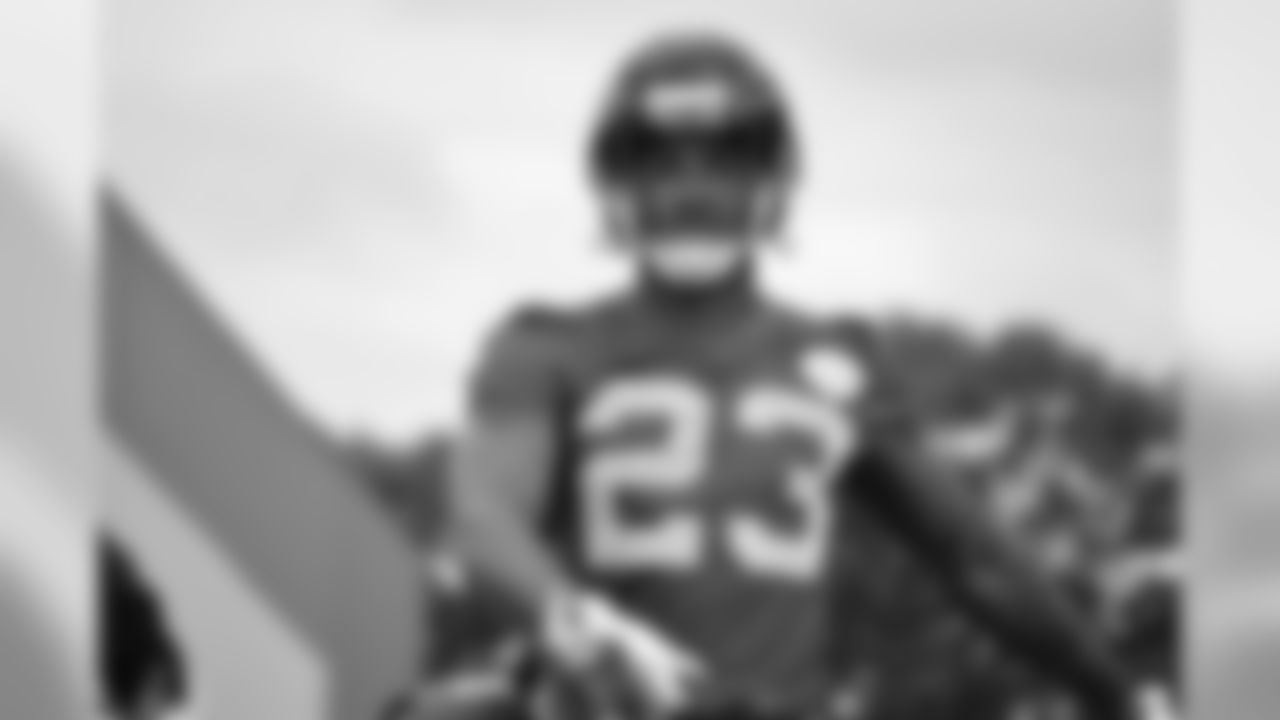
CB Robert Alford
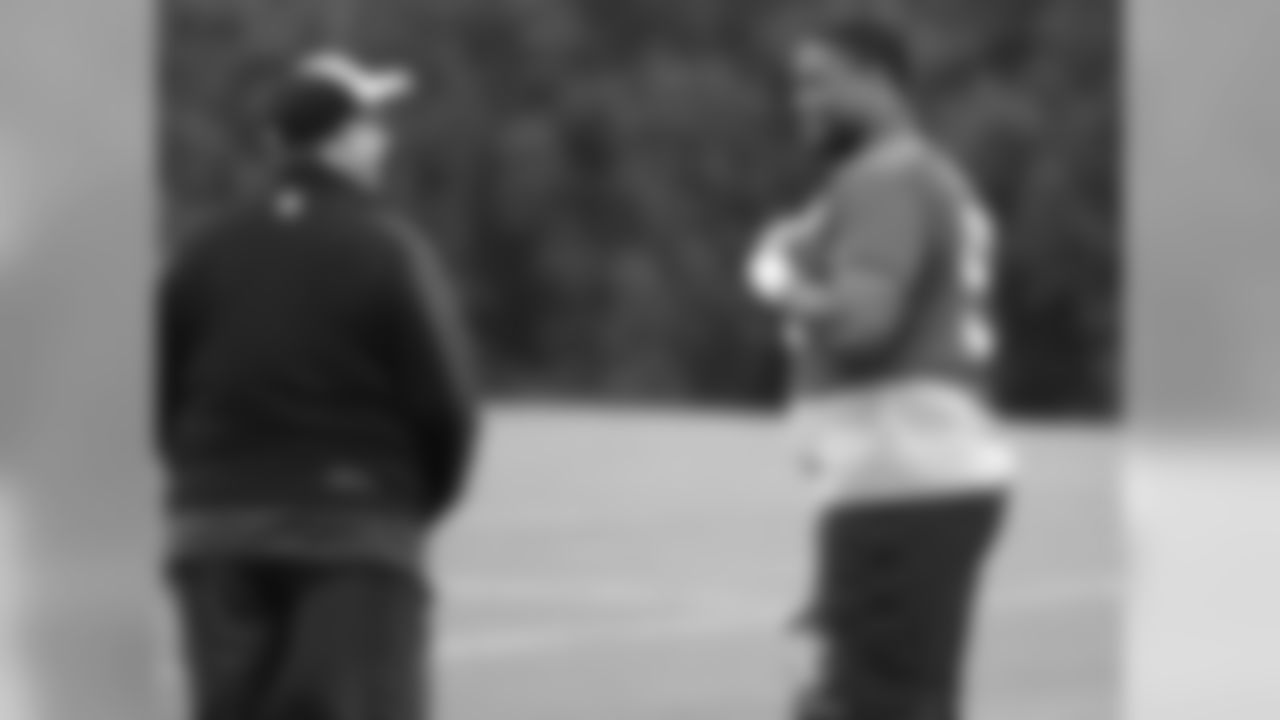
DT Corey Peters talks to tight ends coach, Chris Scelfo
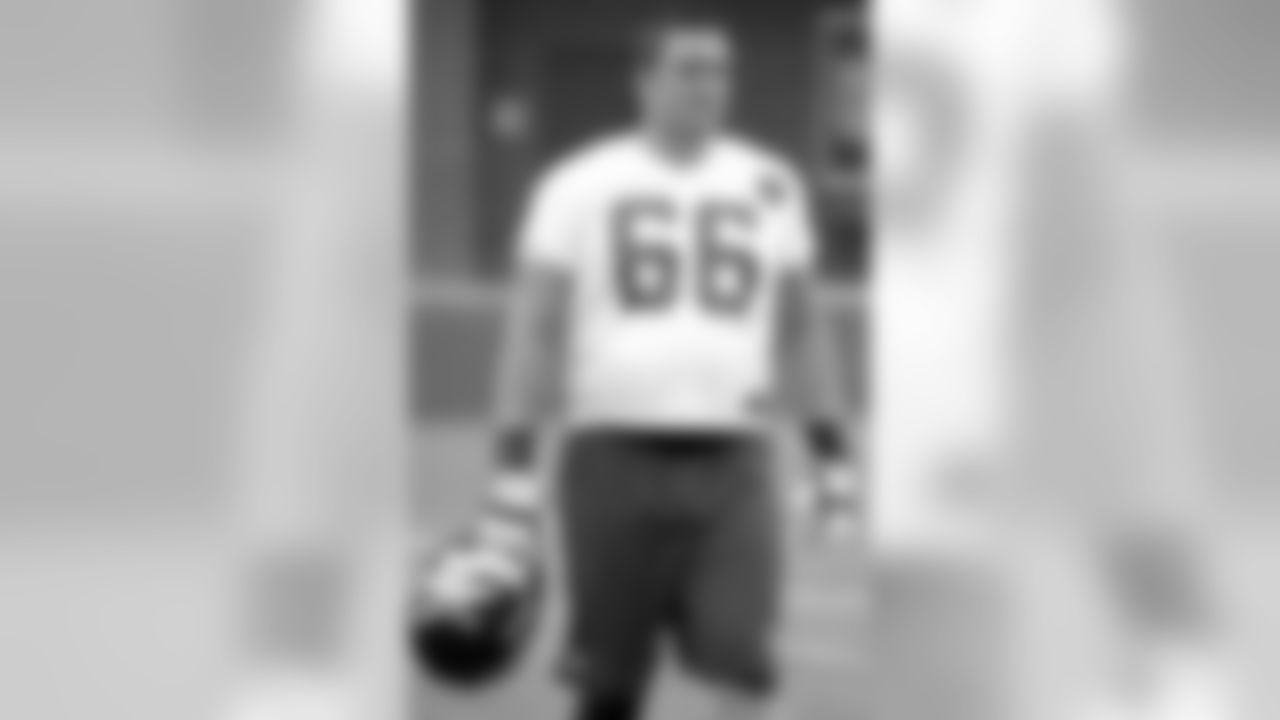
C Peter Konz
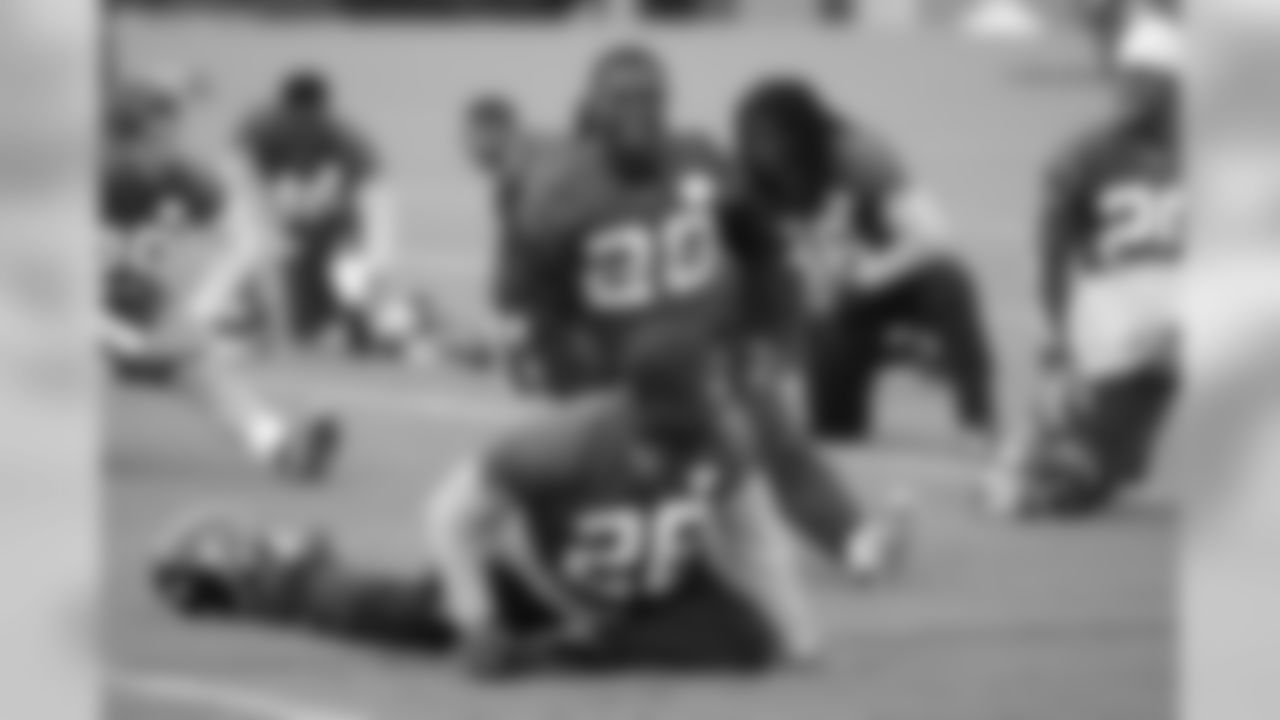
CB Javier Arenas and the DBs stretch before practice
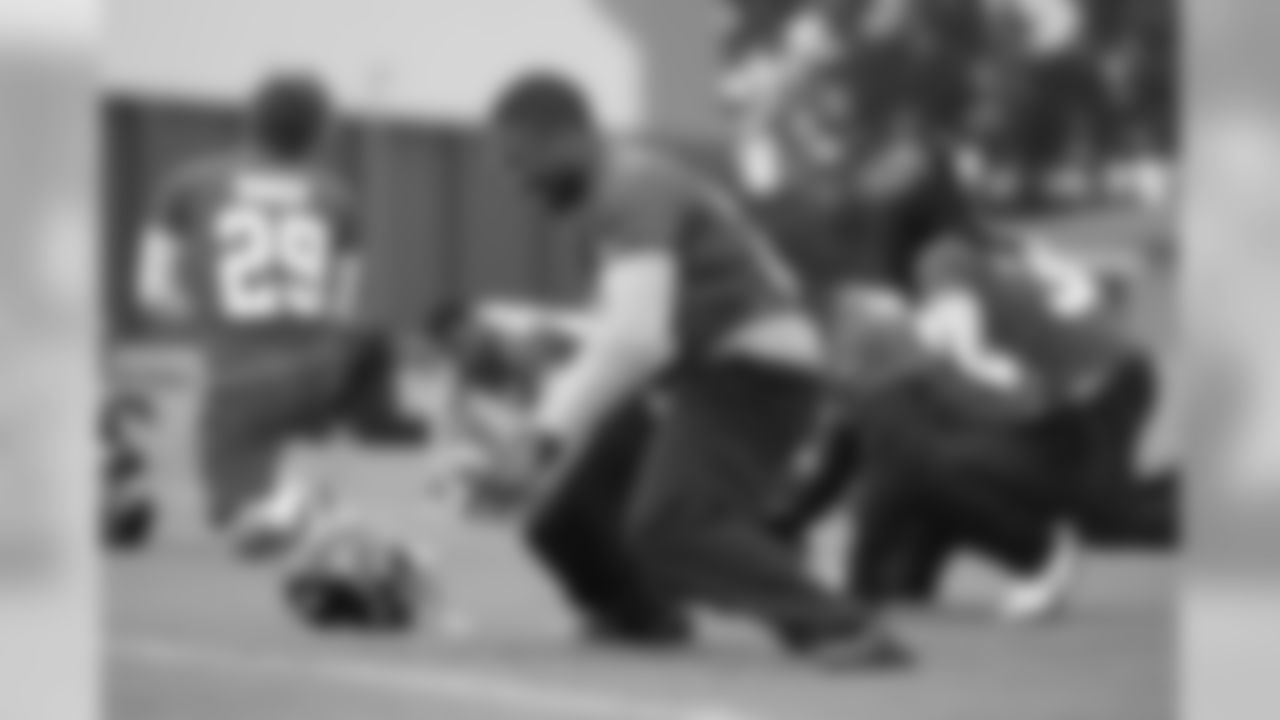
CB Josh Wilson
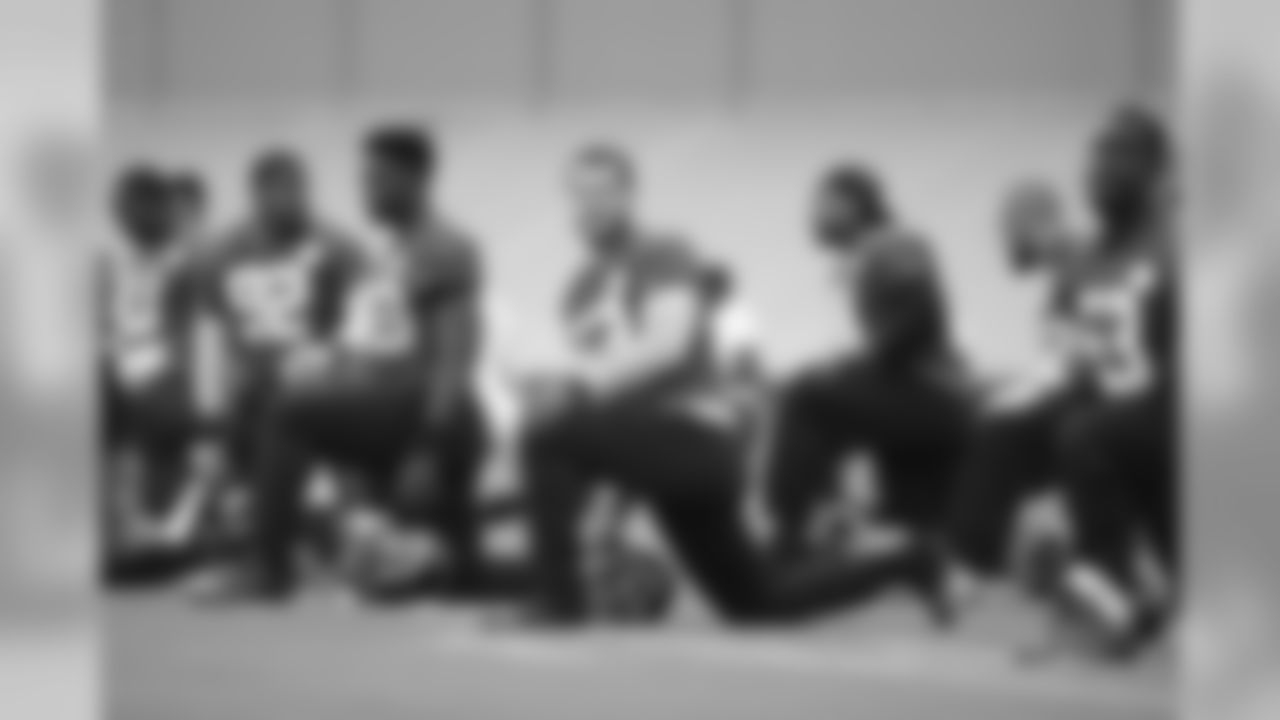
LB Nate Stupar
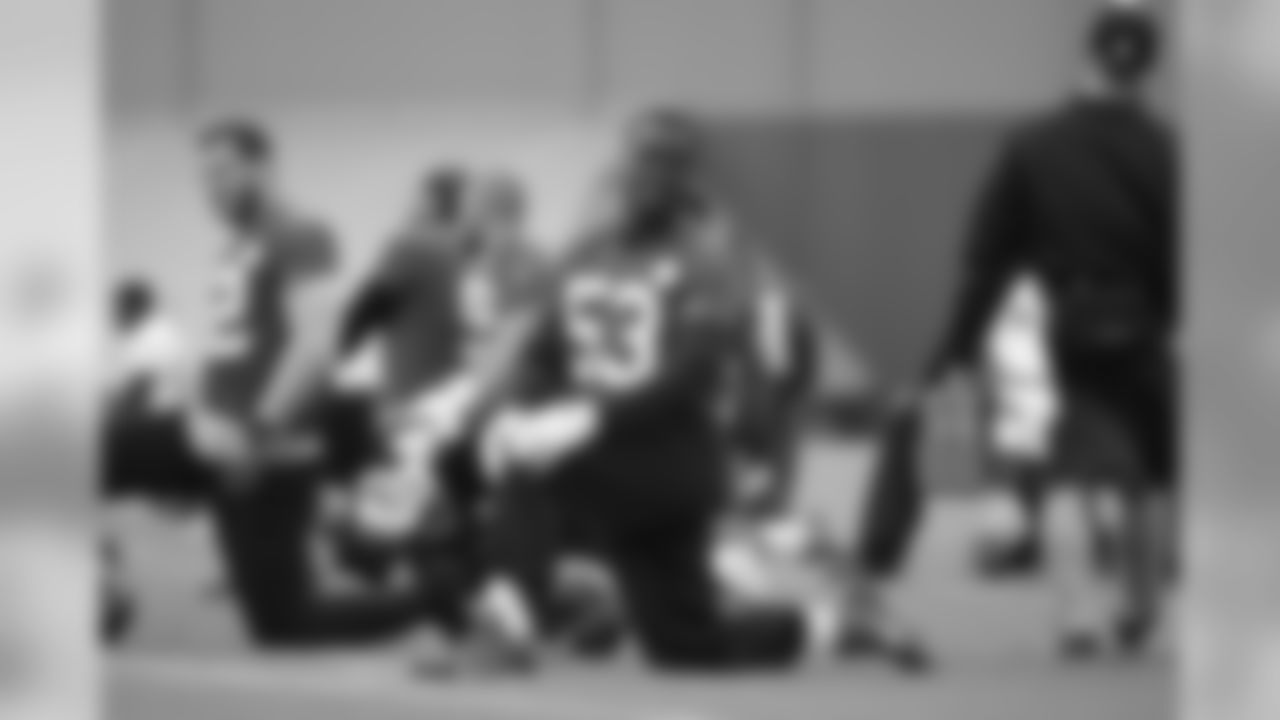
LB Prince Shembo
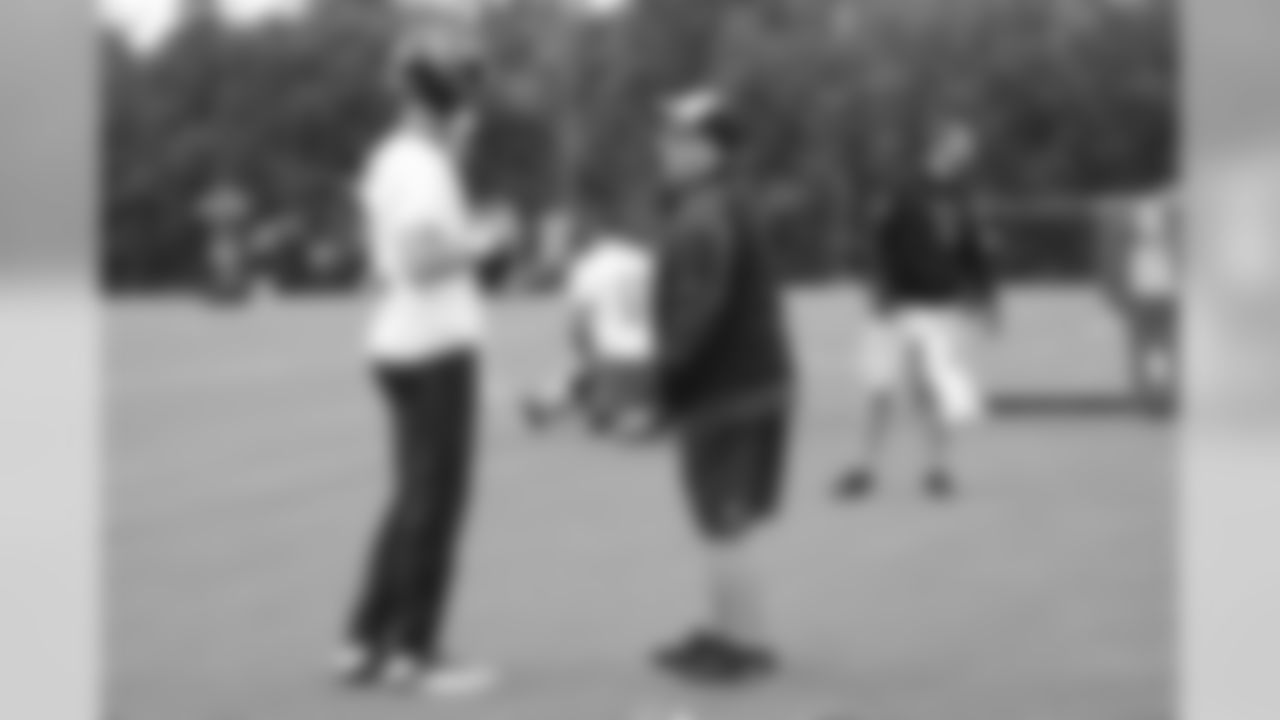
QB Matt Ryan talks to tight ends coach, Chris Scelfo
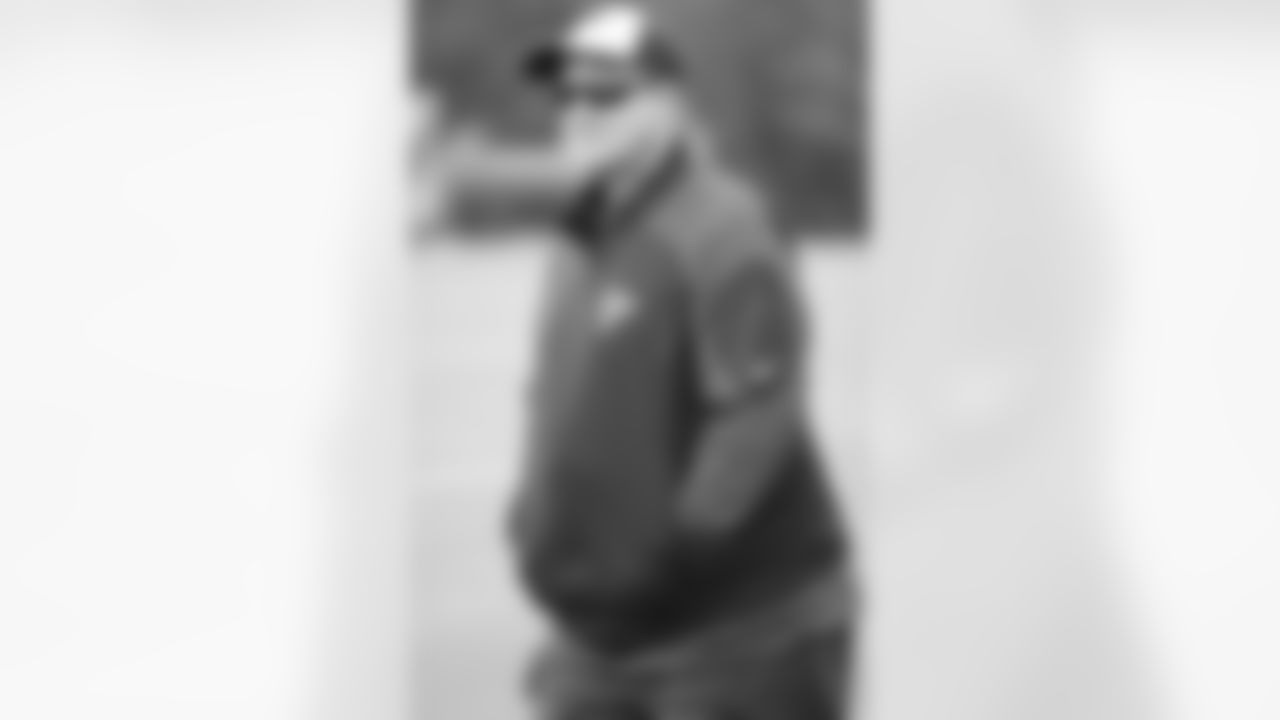
Tight ends coach, Chris Scelfo
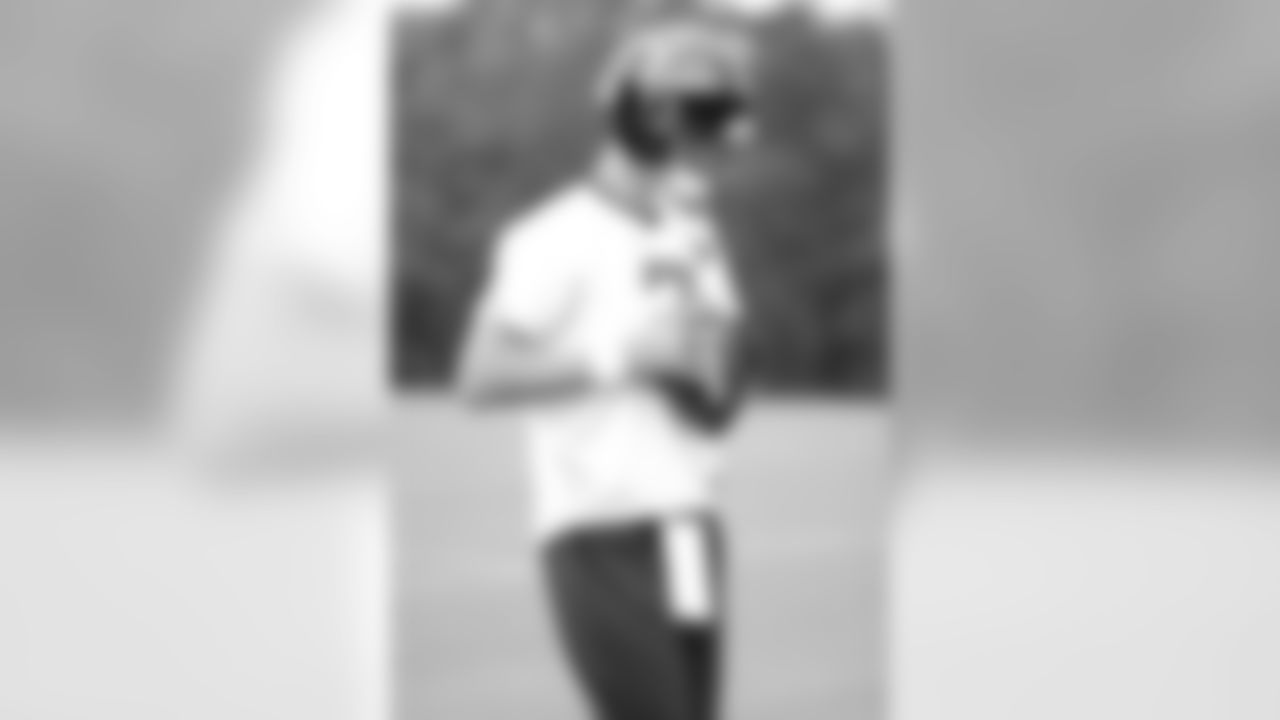
QB Matt Ryan
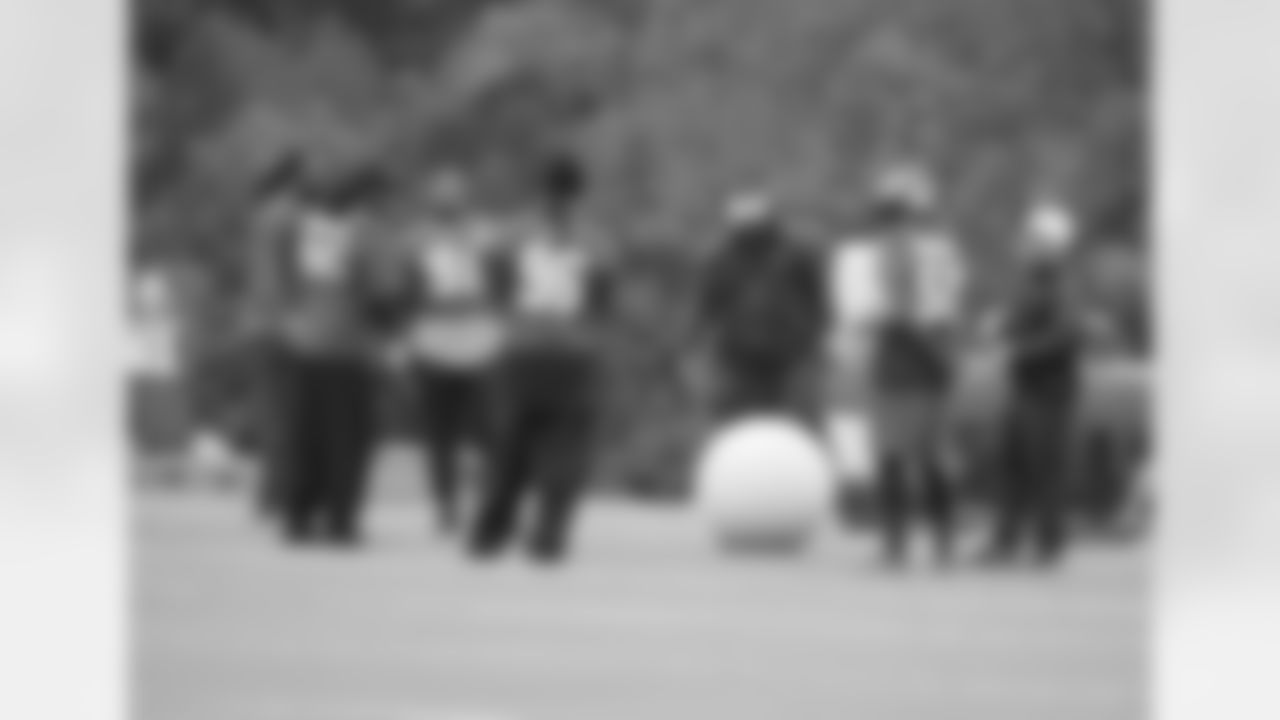
The D-line with defensive line coach, Bryan Cox, and head coach, Mike Smith
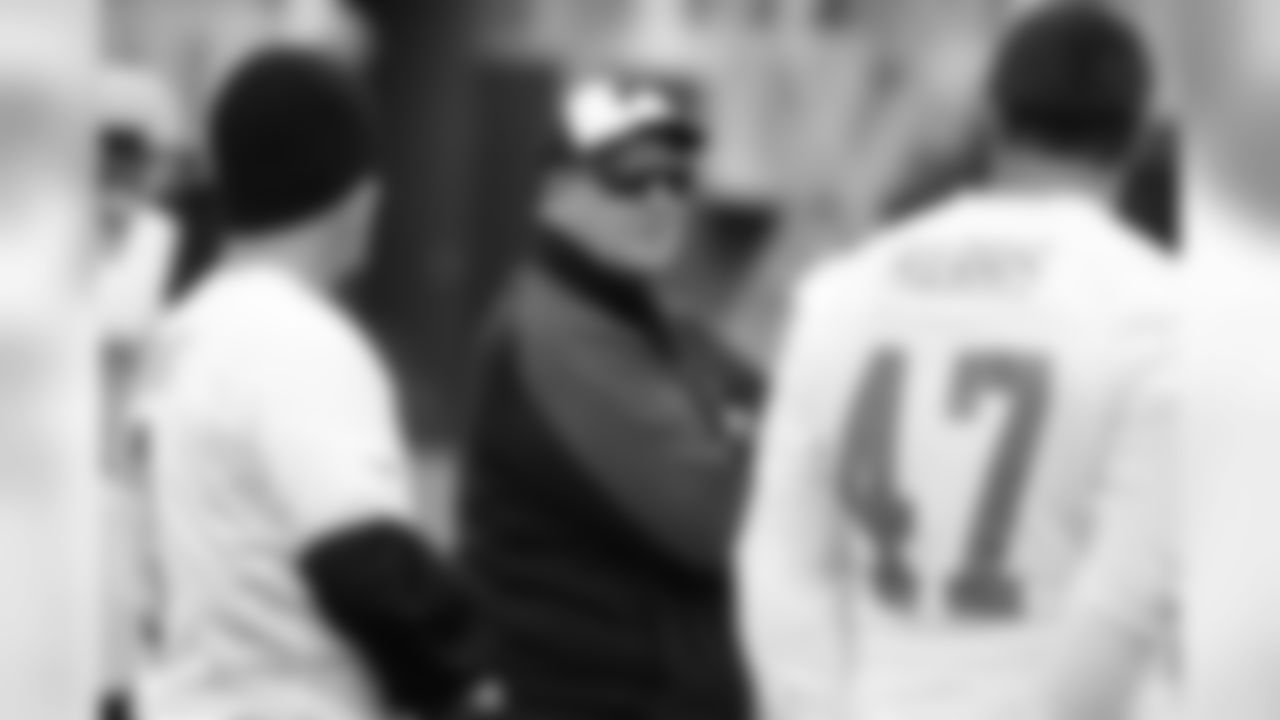
K Matt Bryant and LS Josh Harris talk to tight ends coach, Chris Scelfo
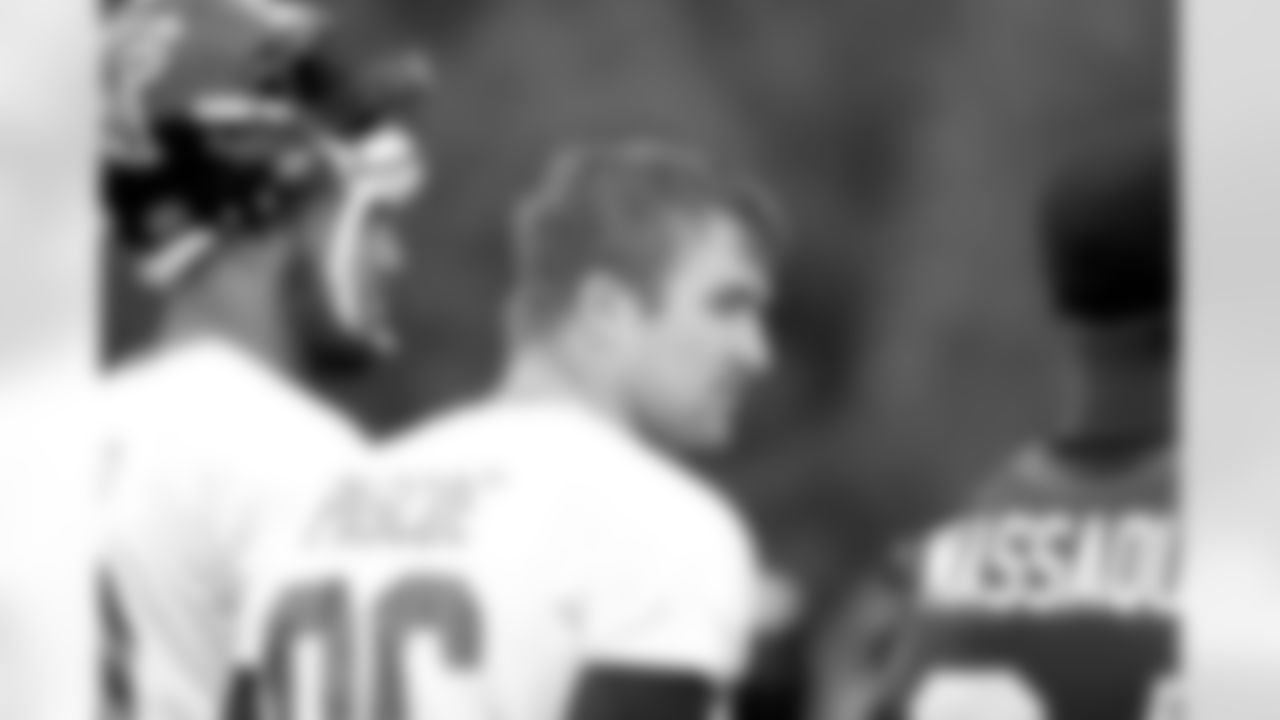
TE Bear Pascoe
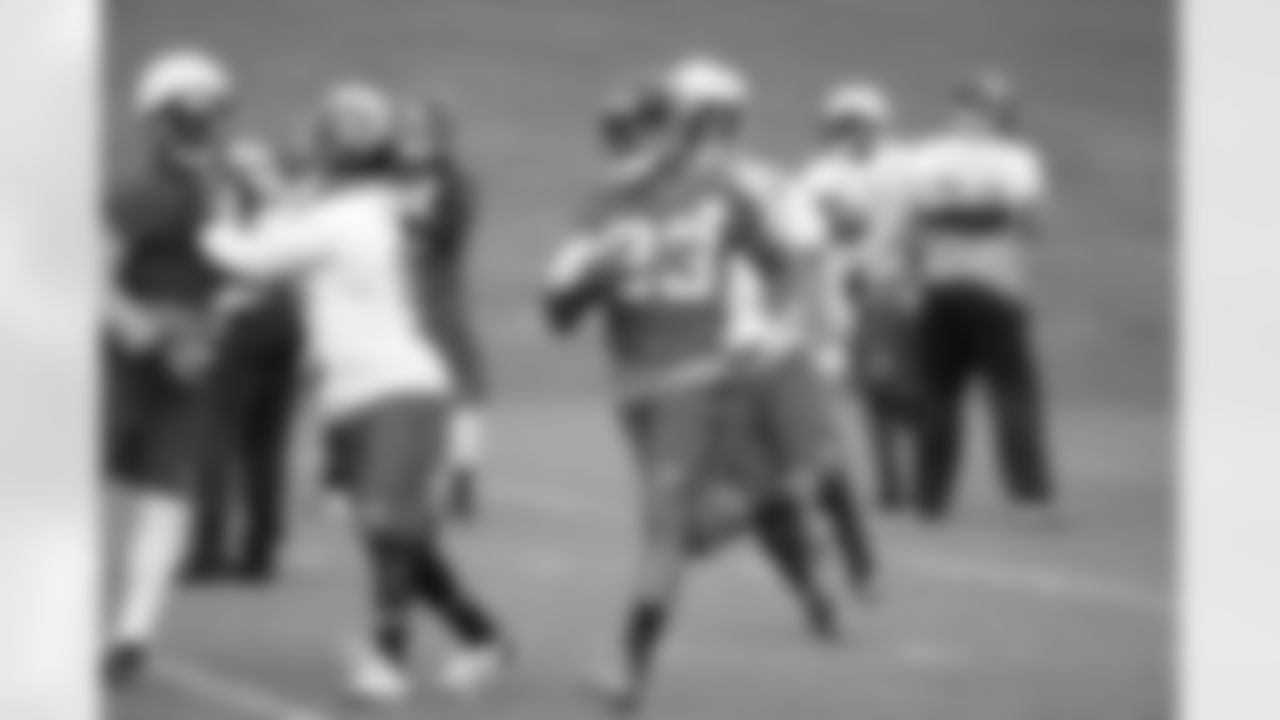
CB Robert Alford
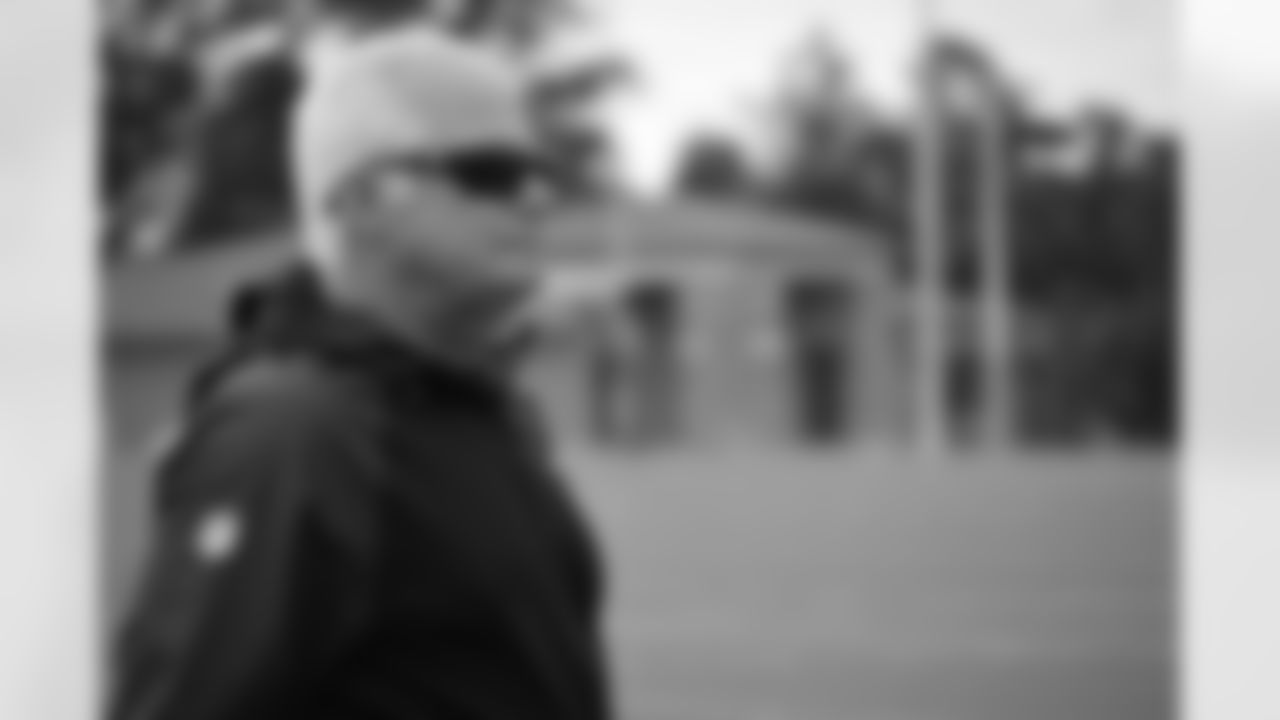
Head Coach Mike Smith
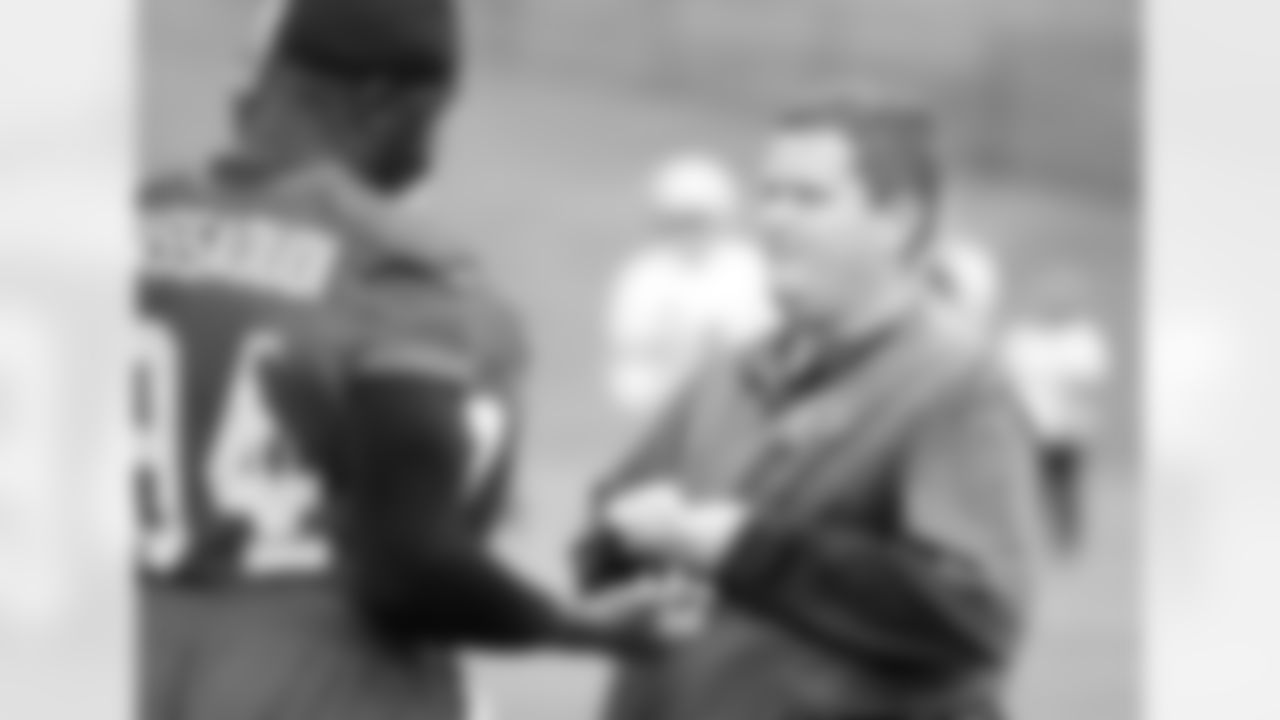
Danny Long, assistant athletic trainer, and DE Jonathan Massaquoi
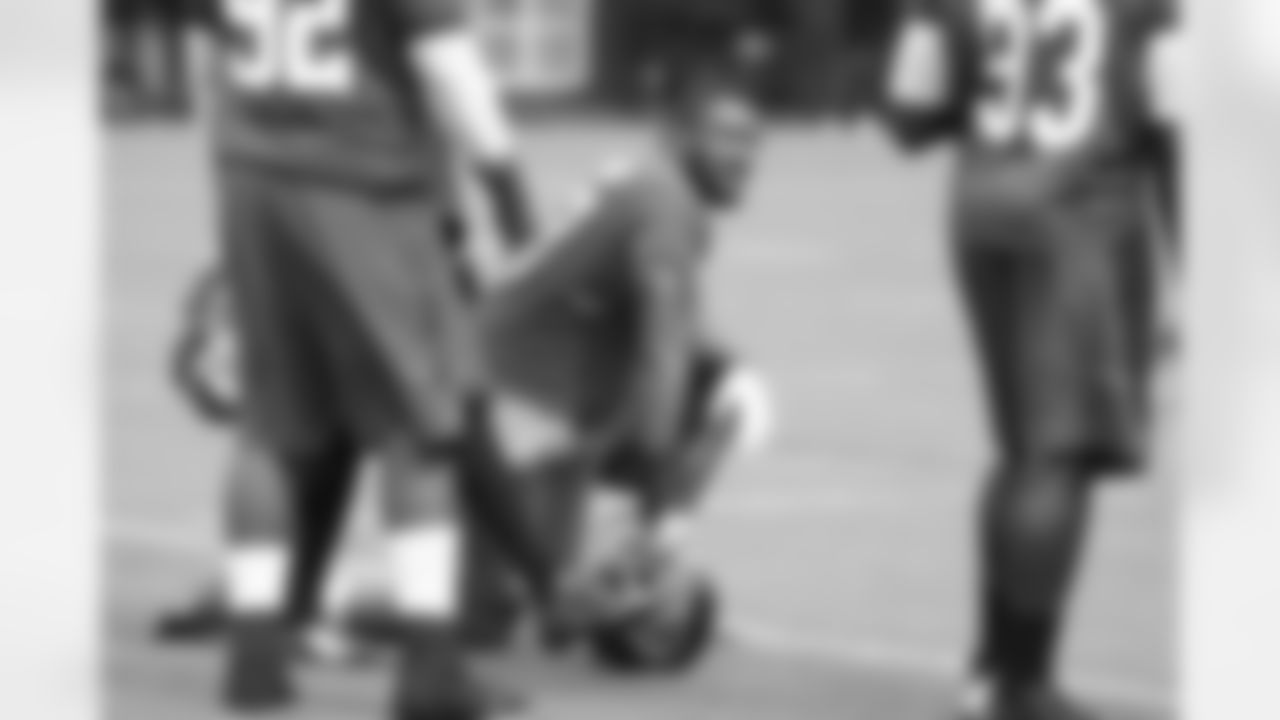
DE Ra'Shede Hageman
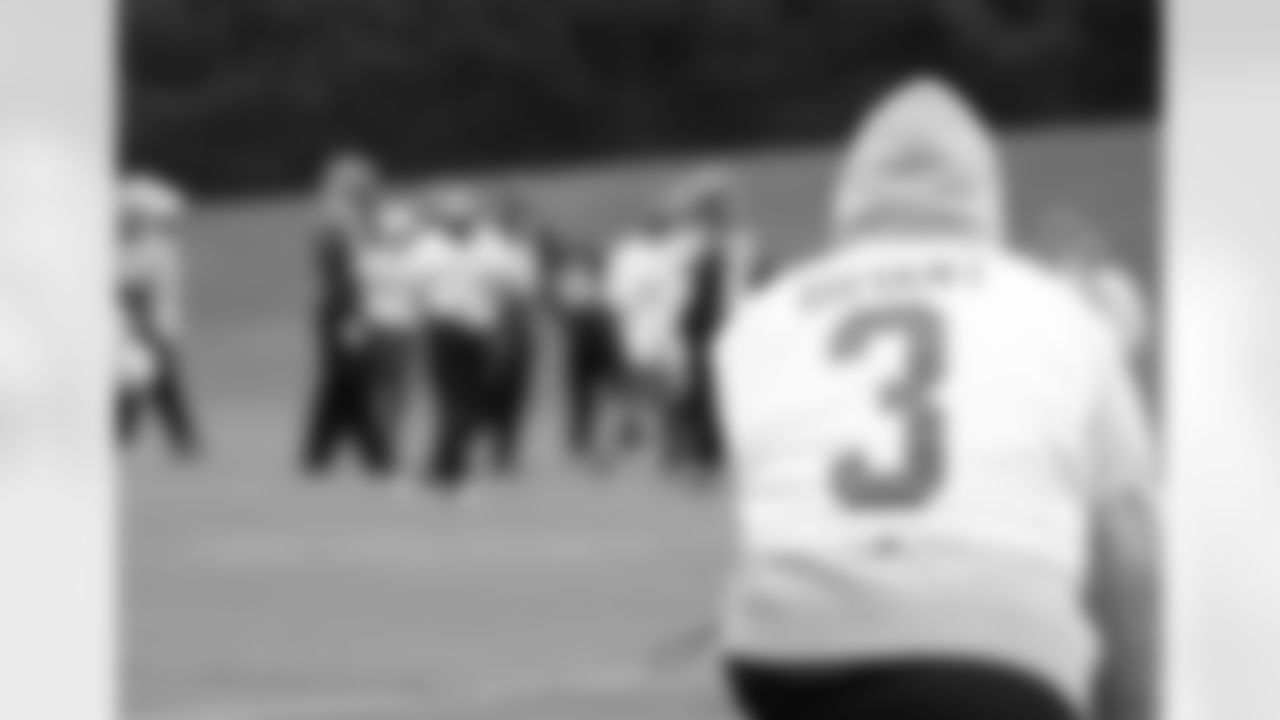
K Matt Bryant bundled up during practice as the wind picked up
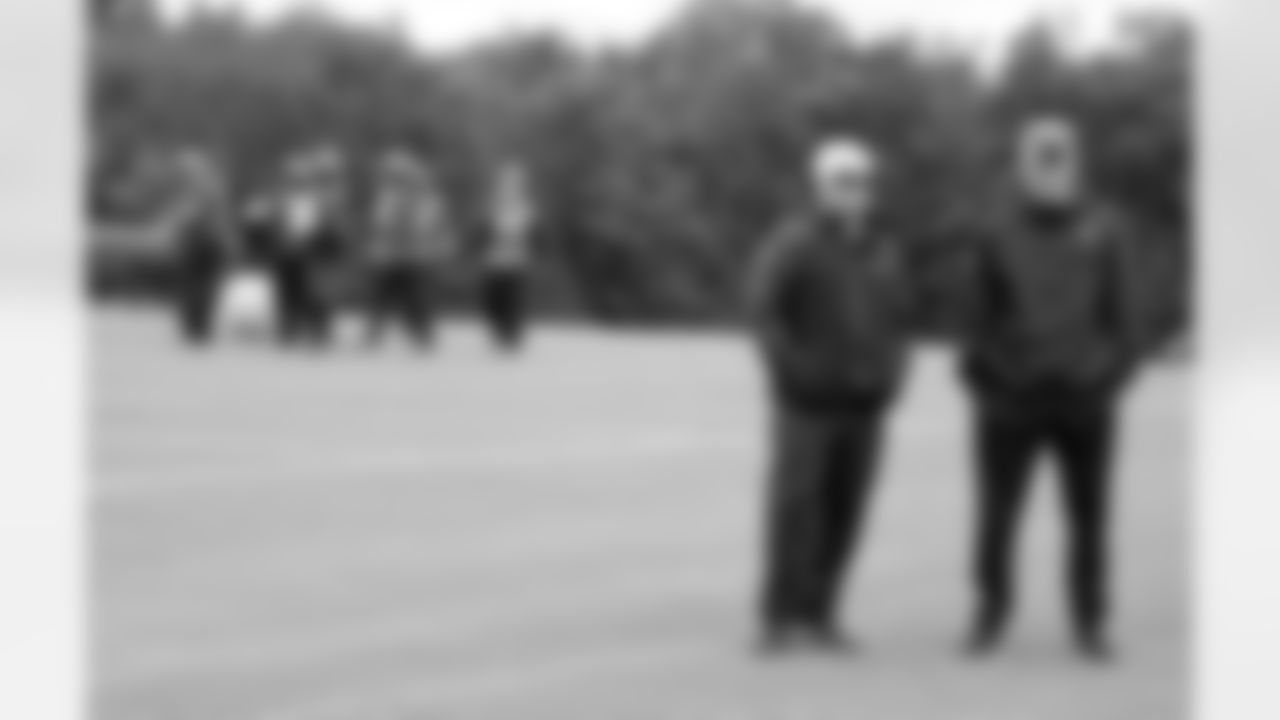
Head coach, Mike Smith, and offensive coordinator, Dirk Koetter
Frank Kleha: You have had some recent changes in your life since last season, welcoming a new baby into the Harris household. How is she doing?
Josh Harris: She is awesome. Kinley is six months old now. She's making a lot of noises. She's so much fun. Every time I get home I feel like she's doing something else exciting and fun.
FK: As a native Georgian, from Carrollton, were you a Falcons fan growing up?
JH: I was definitely a Falcons fan growing up. Carrollton is only 45 minutes west of the city. I remember the Super Bowl in 1998. That was a big year in Carrollton because our high school won the state football championship and the Falcons went to the Super Bowl that year it was special.
FK: What was your best sports memory as a Falcons fan?
JH: I remember when I was 10-years old and my dad had a bunch of friends over to the house and we had a TV set-up outside, which I thought was the coolest thing, to watch the NFC Championship Game (in 1998). Ironically (for what I do now), it was a field goal that was missed (by Vikings K Gary Anderson) that helped the Falcons go to the Super Bowl. I vividly remember that from the game. We watched the Super Bowl outside the same way.
FK: You had quite the athletic career in Carrollton. What sports did you play?
JH: I played baseball, football and wrestling.
FK: Why wrestling?
JH: Wrestling was something I started when I was 9-years old. My dad grew up in the northeast and wrestling is big up there. My dad and my uncle actually started the wrestling youth program in Carrollton. That's something that's been a big part of our family since I was nine or 10 so I wrestled all the way through high school.
FK: How successful was your wrestling career and overall athletic years in high school?
JH: I never won state in wrestling, but I placed. I won our area two times and was a state placer my junior year (coming in fourth overall) at 171 pounds. I qualified for the state tournament three times. Success-wise, I would have to say I was a little bit better wrestler than the other sports I played. But in high school actually, even though Carrollton has a storied football program, we made it further in the baseball playoffs than anytime in football. We had four straight final four appearances at state.
FK: I have to ask you the obvious question that everyone wants to know about your specific job skill. How does someone first learn how to be a snapper?
JH: It's actually kind of funny how it started for me. I remember being in the 7th grade about the time in Pop Warner when you start kicking extra points and punting. I was at practice one day and my coach said, 'Hey Josh, you are going to be our long snapper.' And I said, 'Great…what's that?' So my coach bent over and threw a ball between his legs and said, 'That's the gist.' I was terrible at it, but like anything else the more I practiced I got a little better.
FK: So how did you continue to fine turn your new craft?
JH: It was something I did on the side. It was something that I didn't really enjoy because it was taking time away from resting from playing defense.
FK: How did your career continue to progress?
JH: My sophomore year in high school that's all I did was snap. As a junior, I snapped and played linebacker and my senior season I played defensive end and snapped. I had some interest from some smaller schools to walk-on. But growing up a huge Auburn fan; my grandfather, Jimmy Morrow, was on Auburn's 1957 National Championship team and my mom went there; I knew there was only one place I wanted to go.
FK: How did you get your opportunity at Auburn?
JH: I had a coach tell me that I should try to walk-on as a long snapper. I was like, 'I don't want to do that. If I'm going to play football, I'm going to play a real position.' But I showed up my first day of school as a freshman in 2007 and they had a walk-on tryout. They were a couple of hundred kids that showed up. I snapped about 15-20 balls in front of the coaches and they said they would call me or email me and let me know. I never got a call so I said, 'whatever, hey, I tried it, I can move on.' I didn't want to wonder, 'what if?'
FK: How did you eventually catch on?
JH: Halfway through the season, I got a call from a coach that said they wanted to bring me out. They asked if I had been snapping and, of course, I said yes (with eyes rolling). It was funny; the first thing I did when I got off the phone was go straight to Wal Mart and buy a couple of footballs. I took my buddy out to the intramural field and I snapped for two or three hours just to make sure I could still do it because it had been awhile. I redshirted that year and in 2008 I was the back-up and then 2009 was my first year starting.
FK: Tell me about your magical National Championship year at Auburn. What a thrilling experience.
JH: We were talking earlier about my best sports memories and I would definitely have to say that game was it. Just because growing up a huge Auburn fan and knowing how much what Auburn means, to not only me, but my family, to able to win a National Championship for that team was awesome. The fact that it came down to a field goal was even sweeter, especially since my grandfather was on the '57 National Championship team. To have that kind of connection was really cool, too.
FK: Were you nervous to try to deliver that perfect snap on that game-winning field goal?
JH: You know what's weird, the only time I think about it is after the fact. In the moment you are just thinking about doing the job and delivering that perfect snap.
FK: You were able to get a tackle last week on a special teams play. With all that you are responsible for on each snap, how did it feel being able to make that tackle?
JH: It's a great feeling, obviously, but at the end of the day my job is to deliver the perfect snap, to deliver the snap to the punter, protect, and then cover. A lot of times I'm not the first guy down there because sometimes my job is telling me to help somebody else get free. To be down there in that position to make a play it's very gratifying. But at the same time I know it doesn't always turn out that way so it's just back to work (the next time). You've said in the past that there is no such thing as a perfect snap. But you just mentioned, 'your job is to deliver the perfect snap.'
FK: Are you constantly trying to make that perfect snap?
JH: What I mean by the perfect snap is there's always something that can be better. It's elusive and you are trying to chase it. It does exist. I'd like to think that it exists, but there's always something you can look at and say,'You know what, this could have been a little better.' That doesn't mean I'm not happy with a particular snap. But it can always be better.
FK: What is one thing about you that people would be surprised to know?
JH: I do a lot of trout fishing and bass fishing. I grew up going with my dad. In Carrollton, we would go to my buddy's ponds on their farms. My dad and I would take trips up here to North Georgia and go into the different trout streams, too.
FK: What's the best experience you'd had fishing?
JH: We've been on some deep sea fishing trips and catching some good-sized bass. But I would have to say at the beginning of this past offseason my dad, brother and me went up to a North Georgia river called the Tick. The trout we were catching were trophy-sized. It was the first time that I had really caught trout that size. We were pulling in 17-18 inch rainbow trouts. Since it was with my dad and brother it was that much more cool and icing on the cake.


